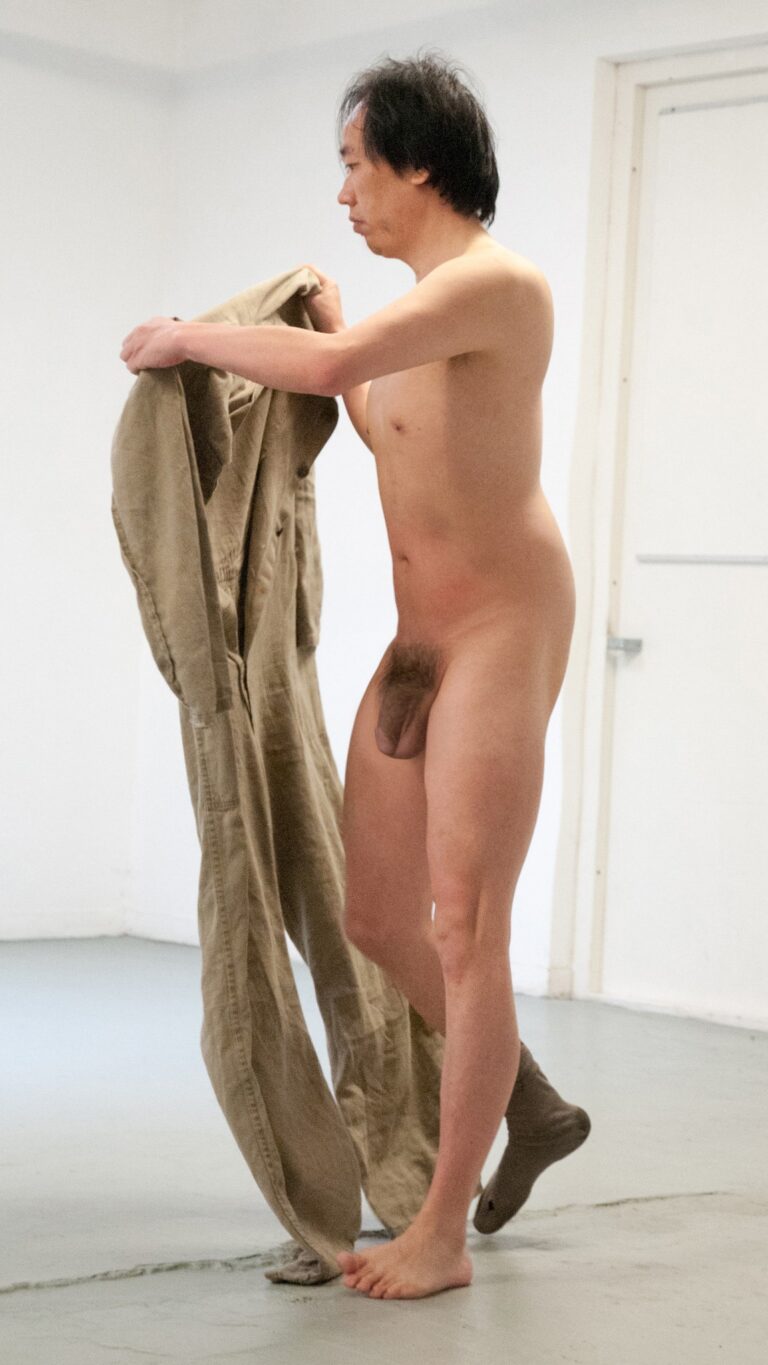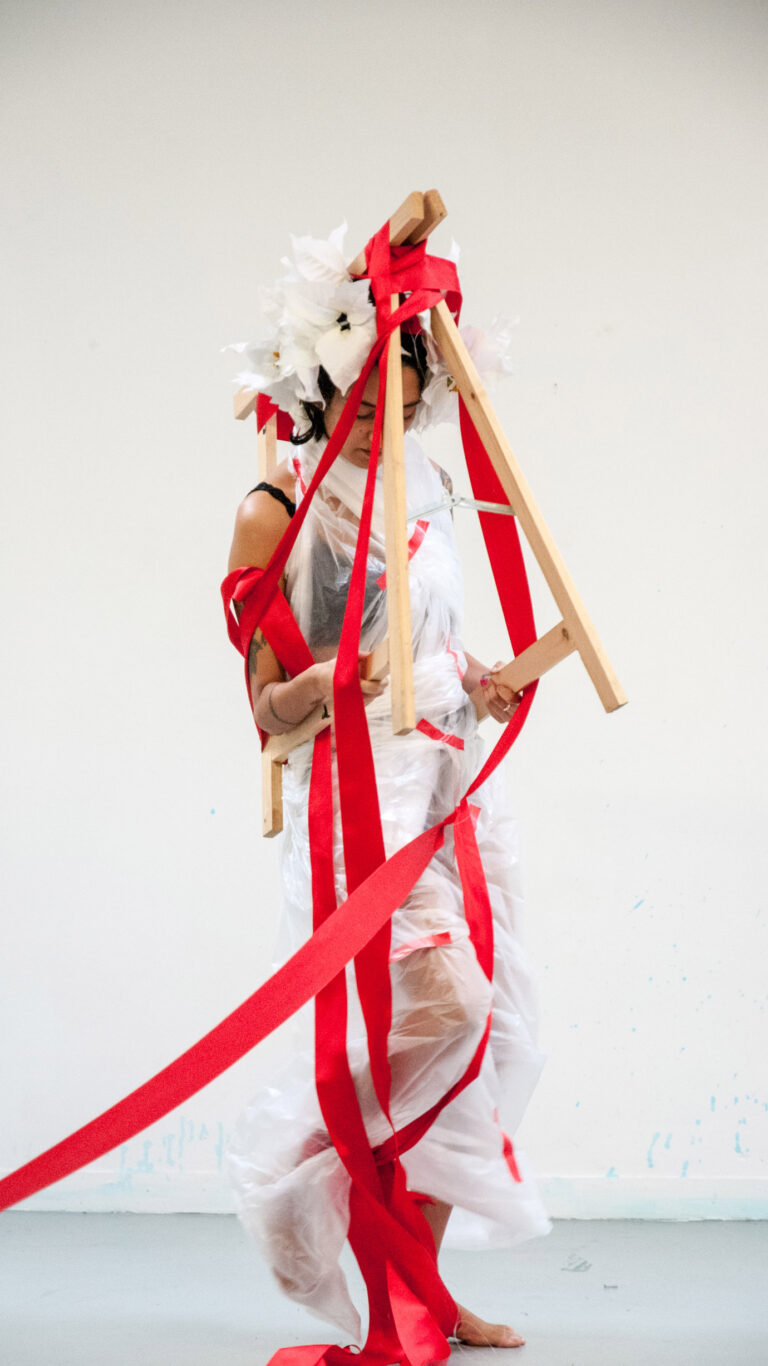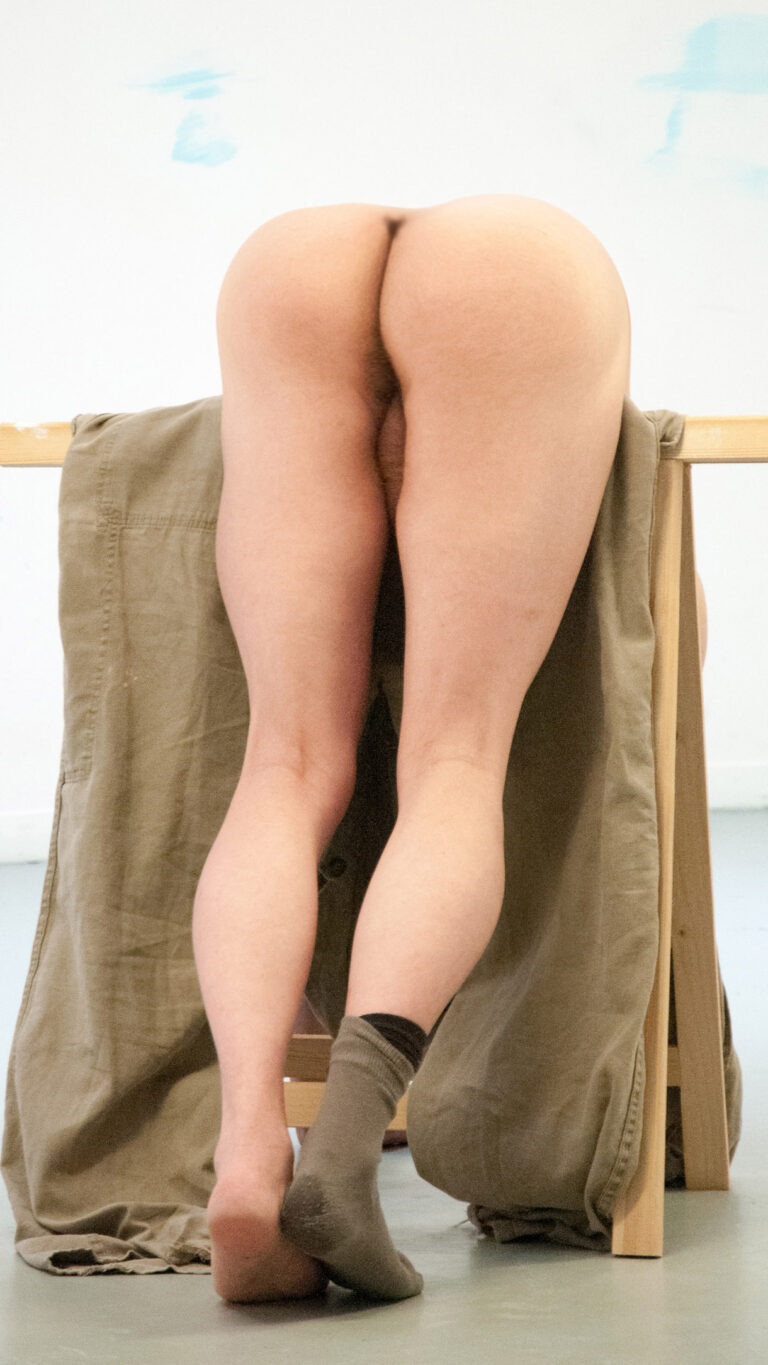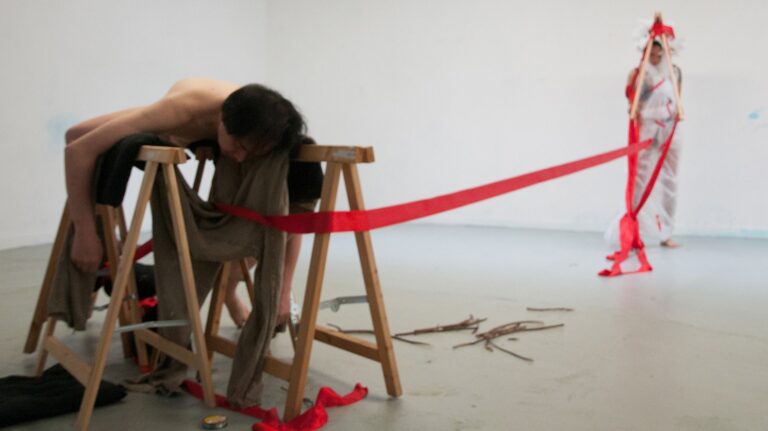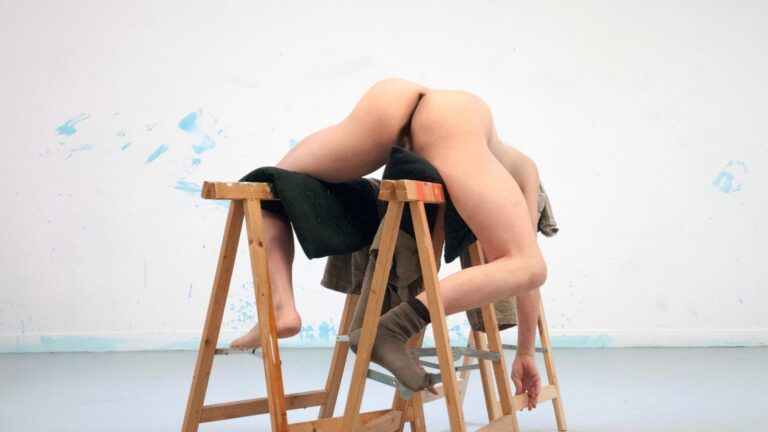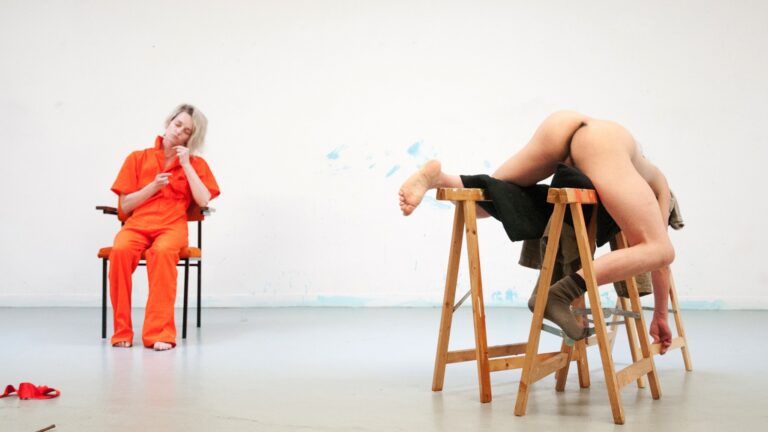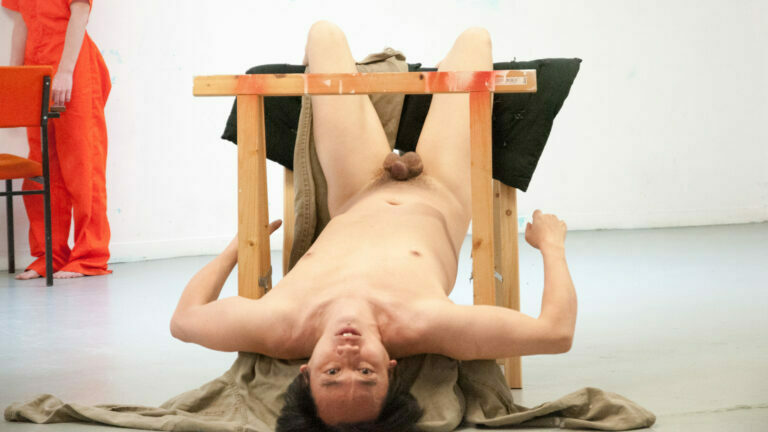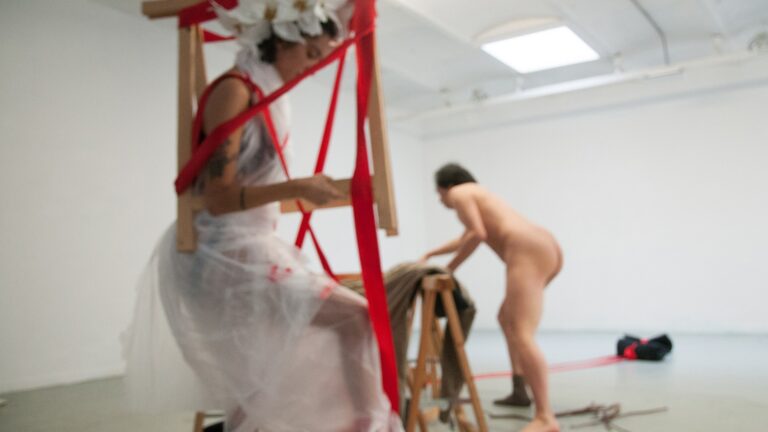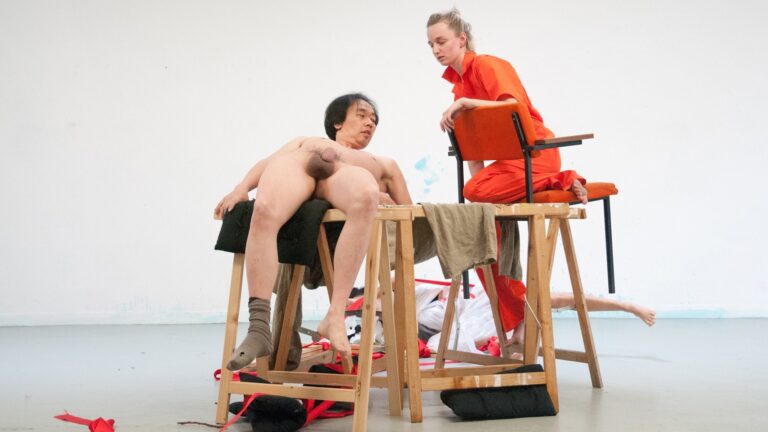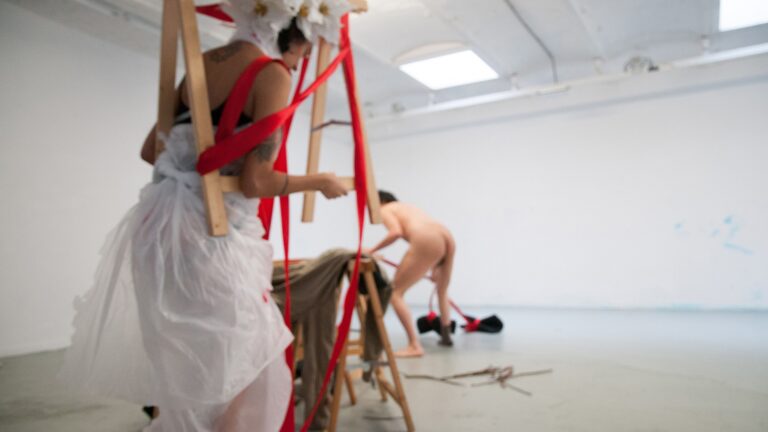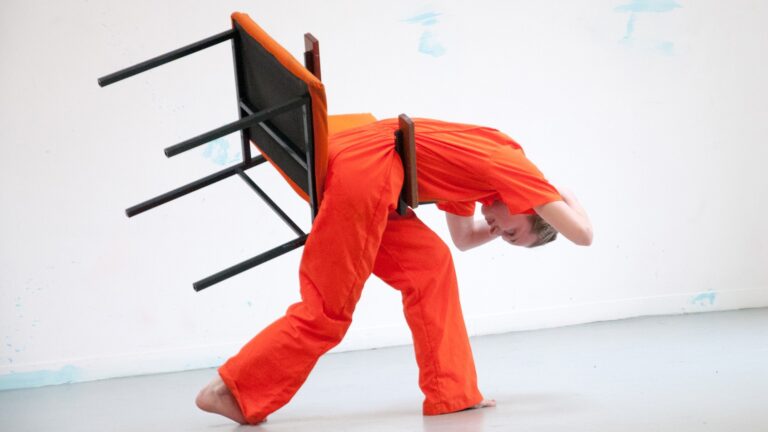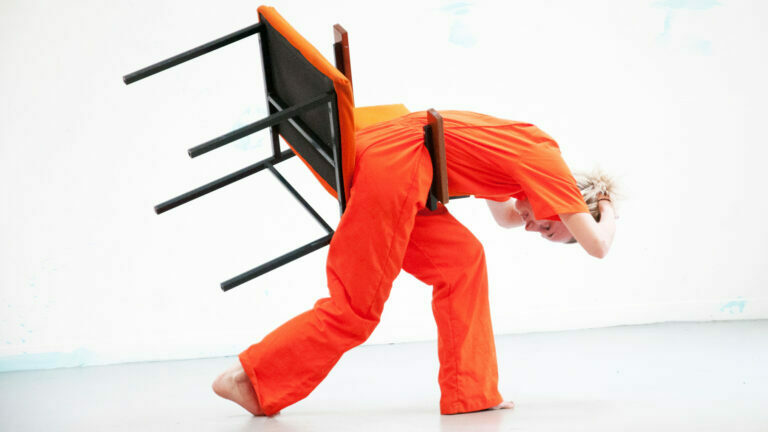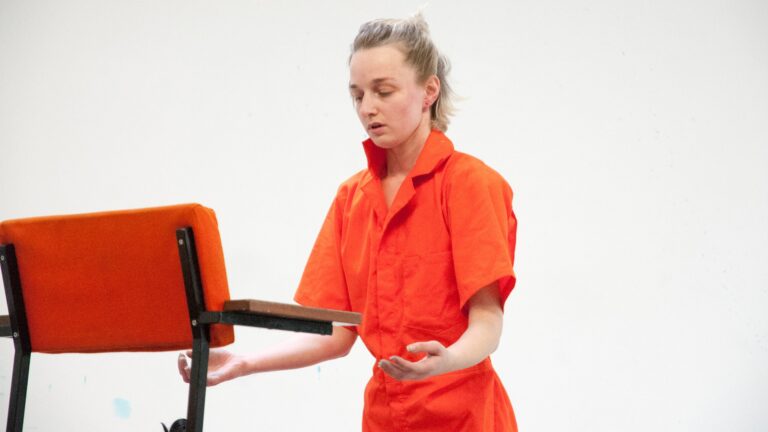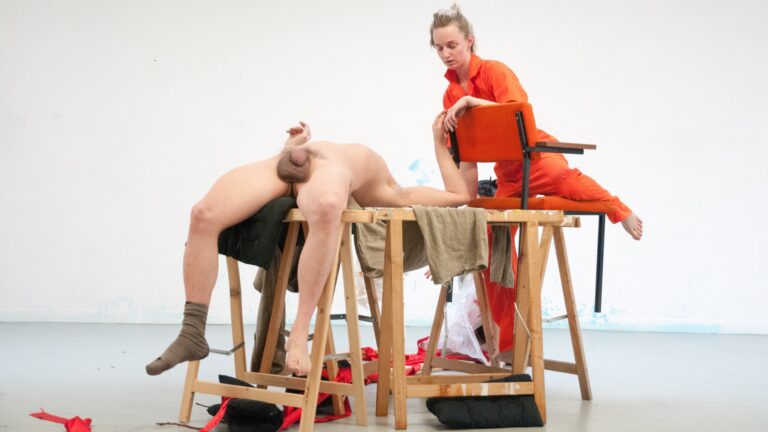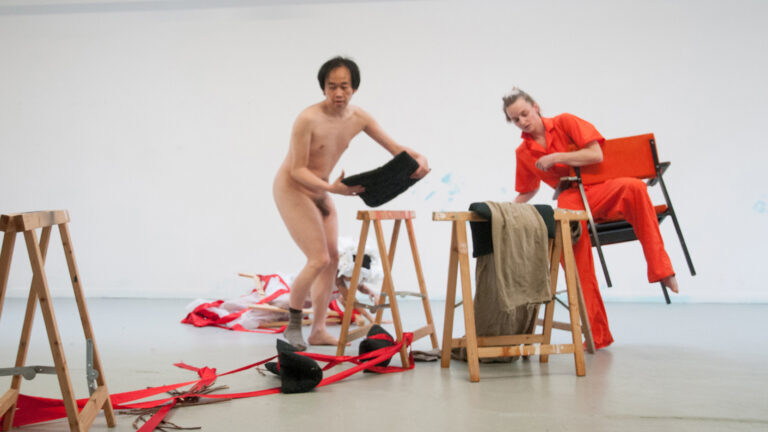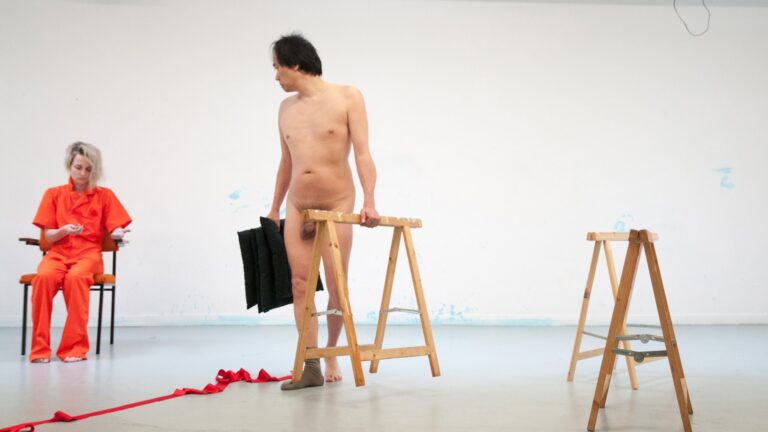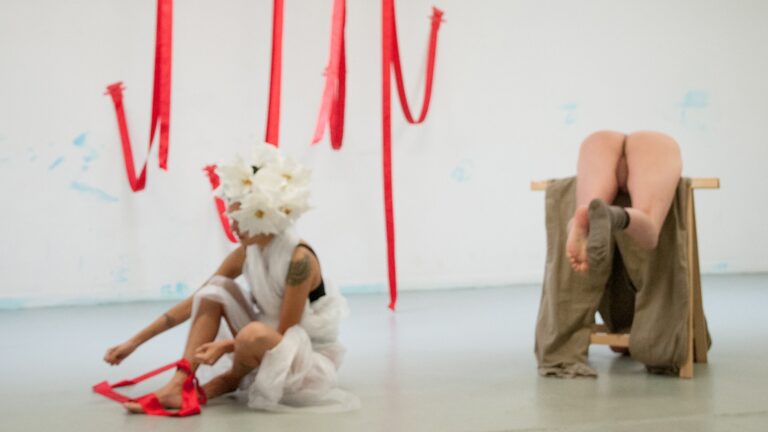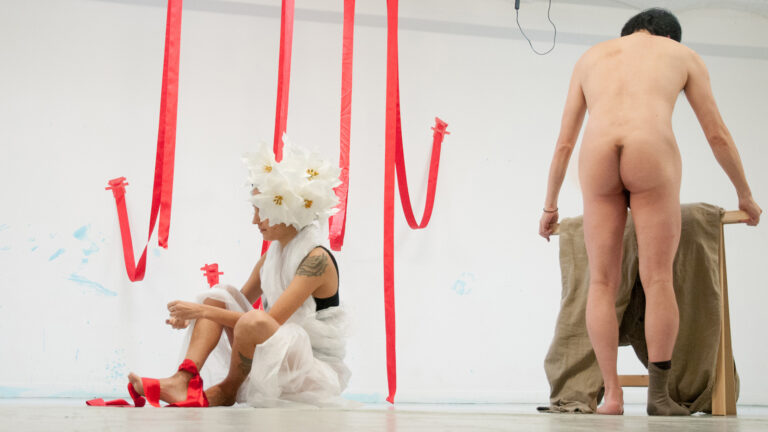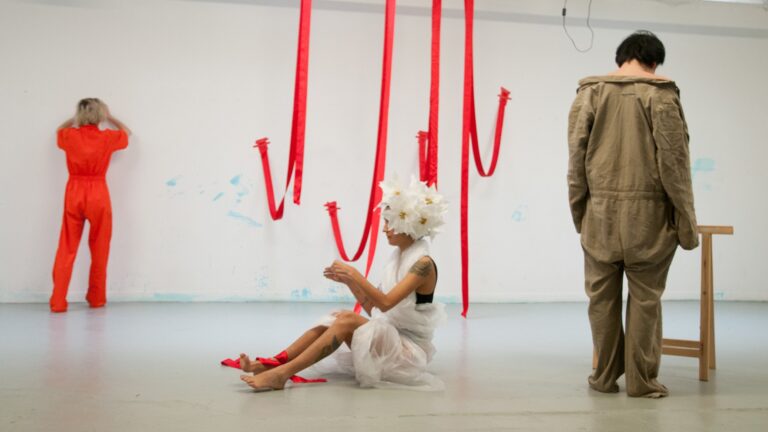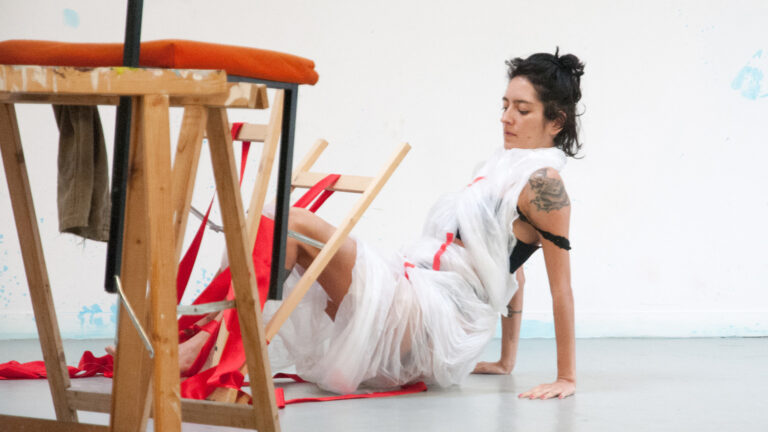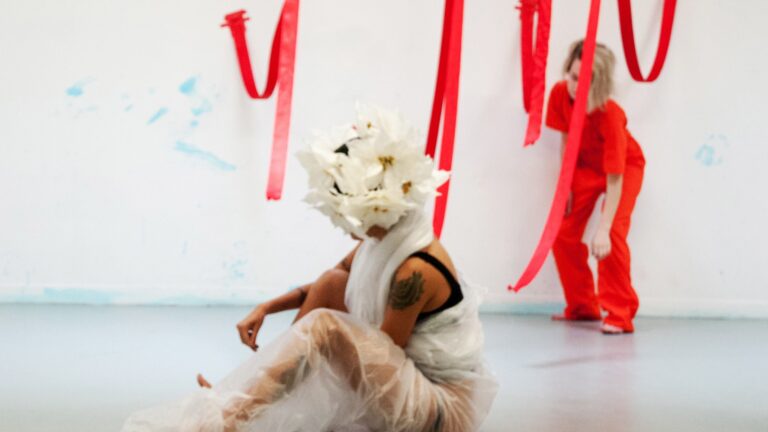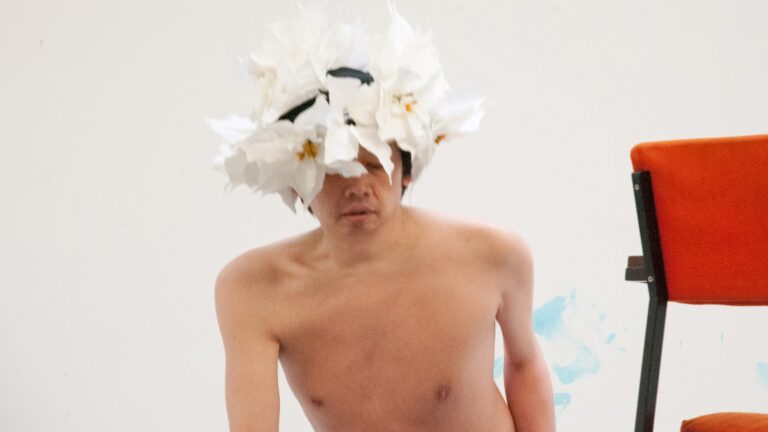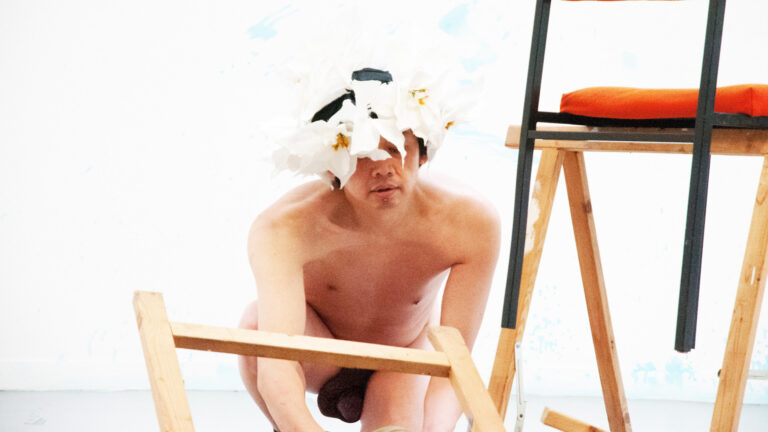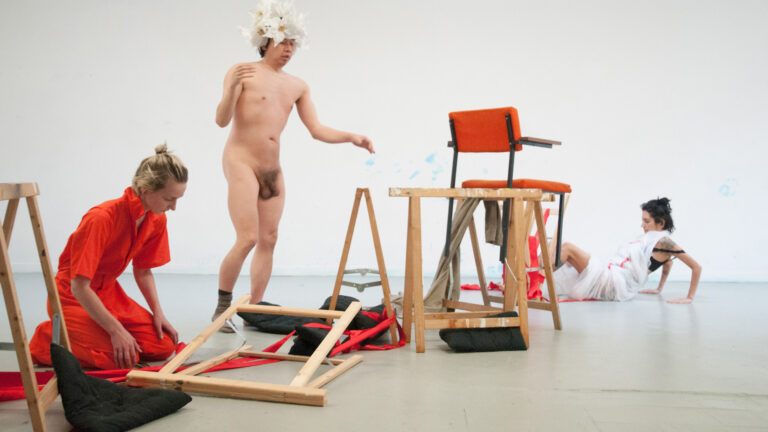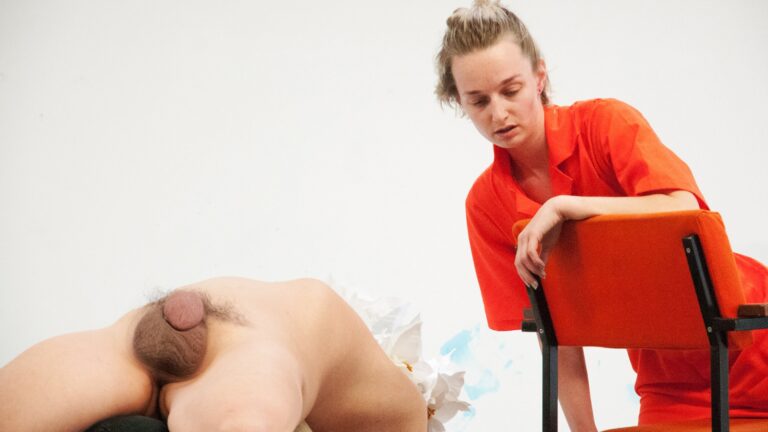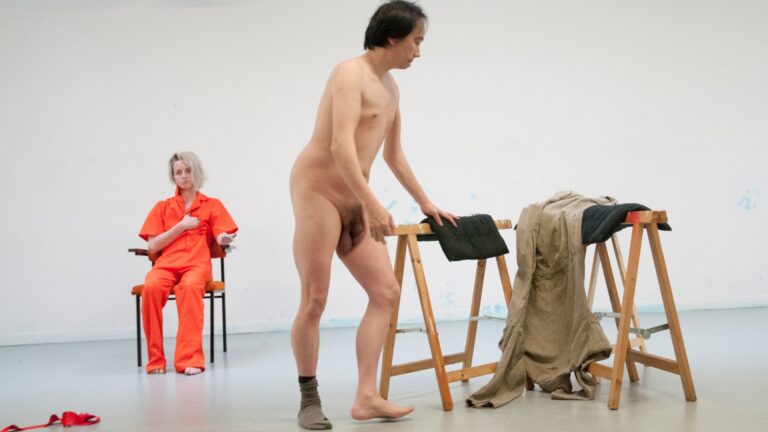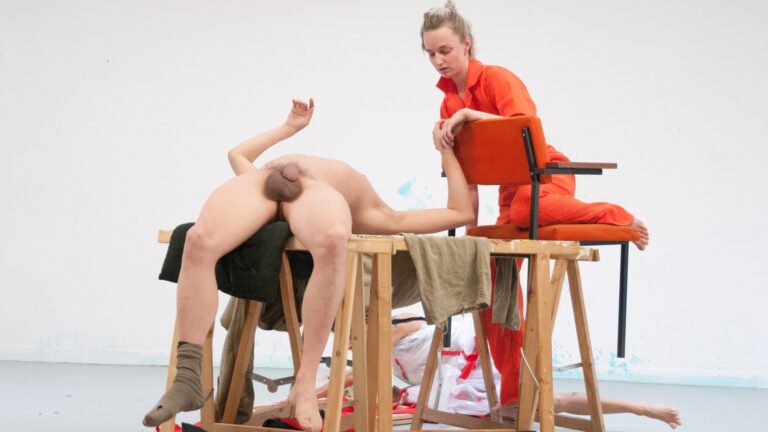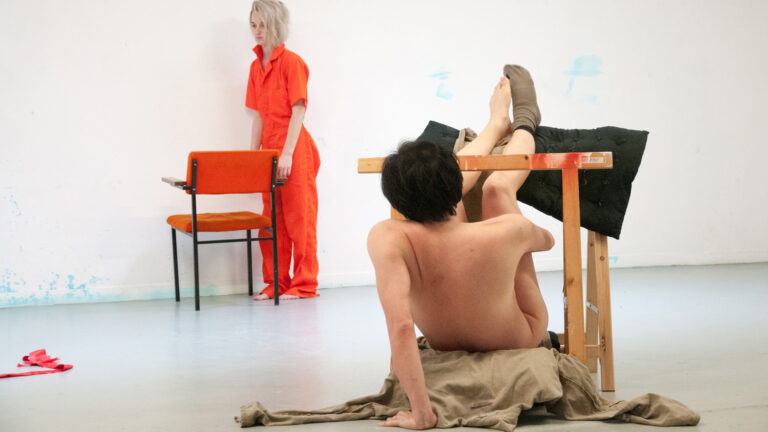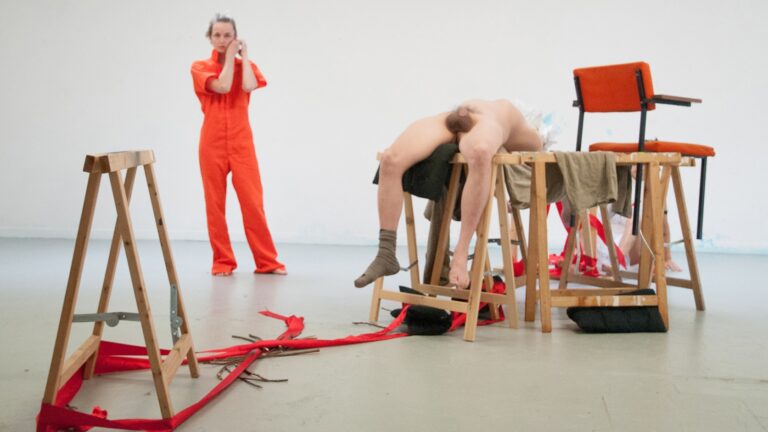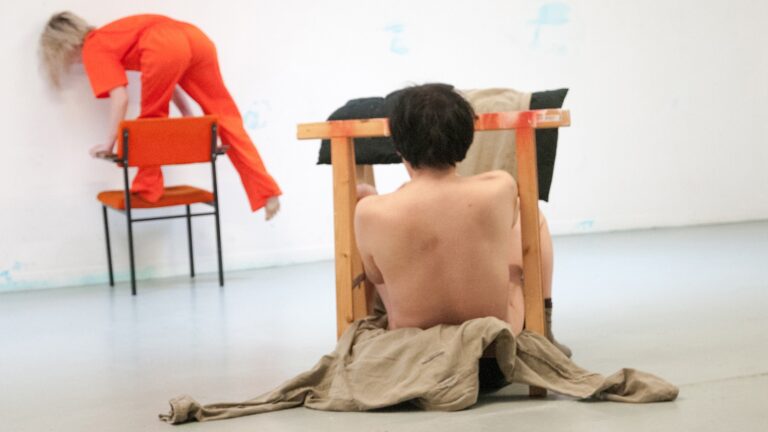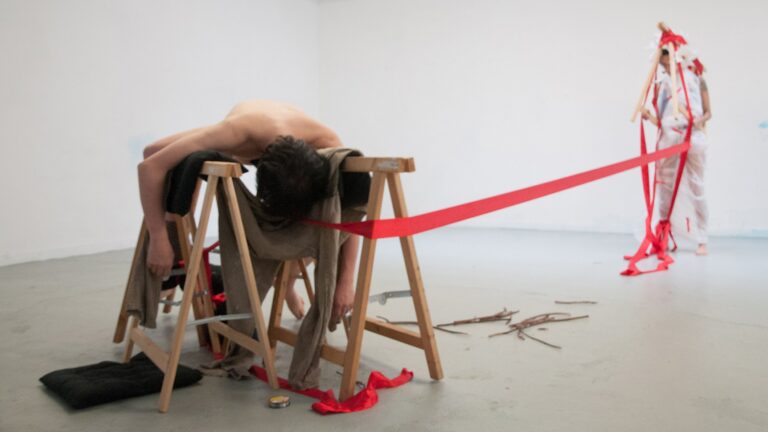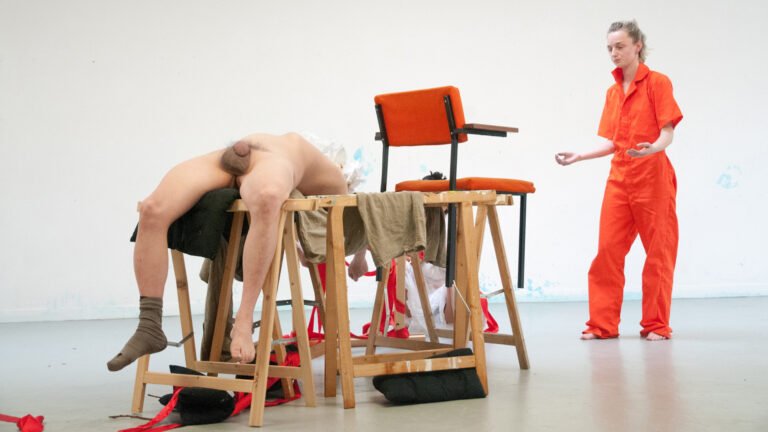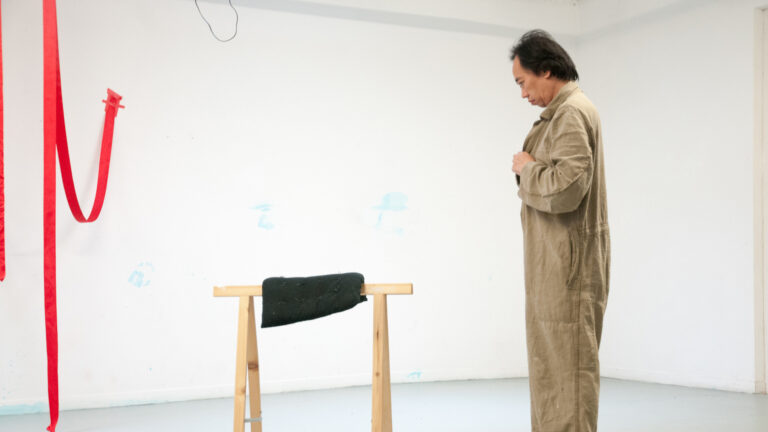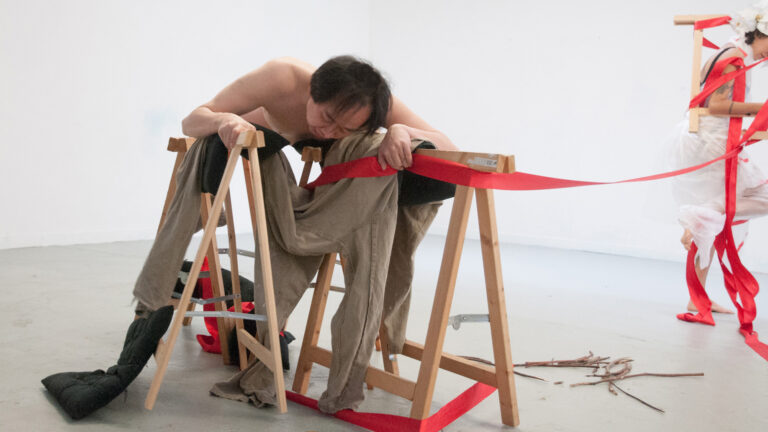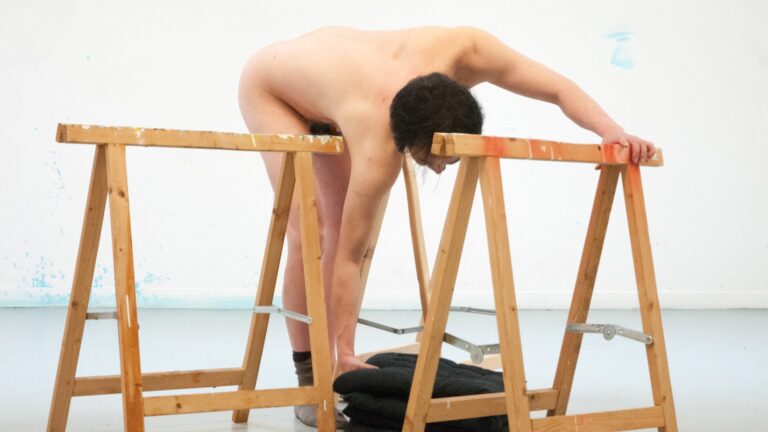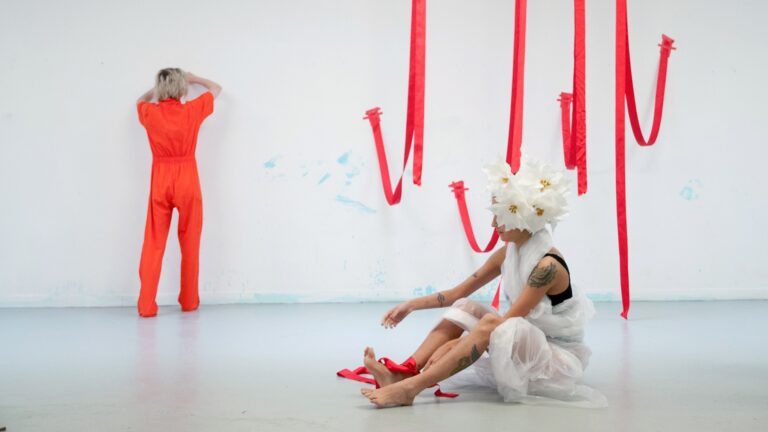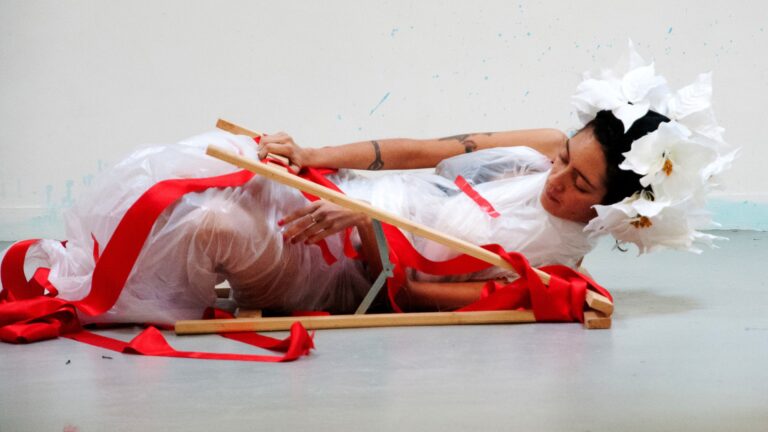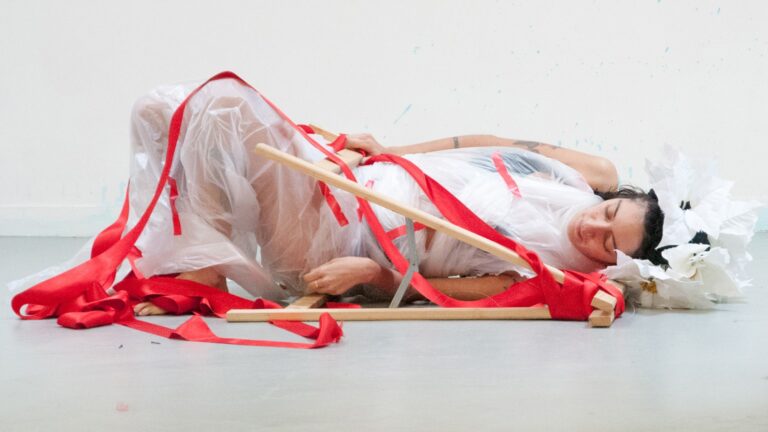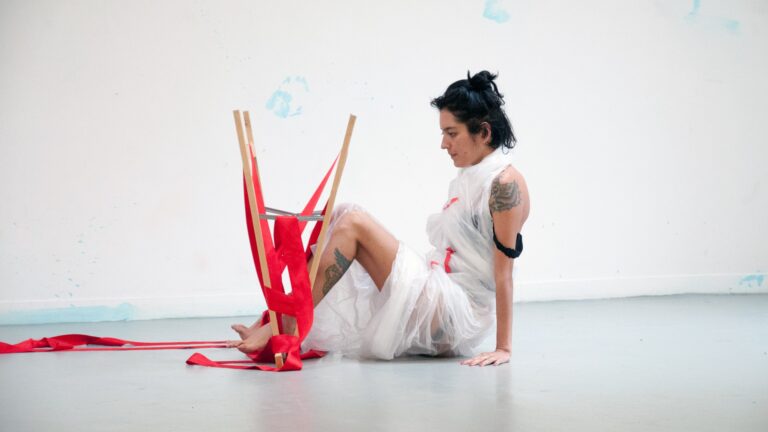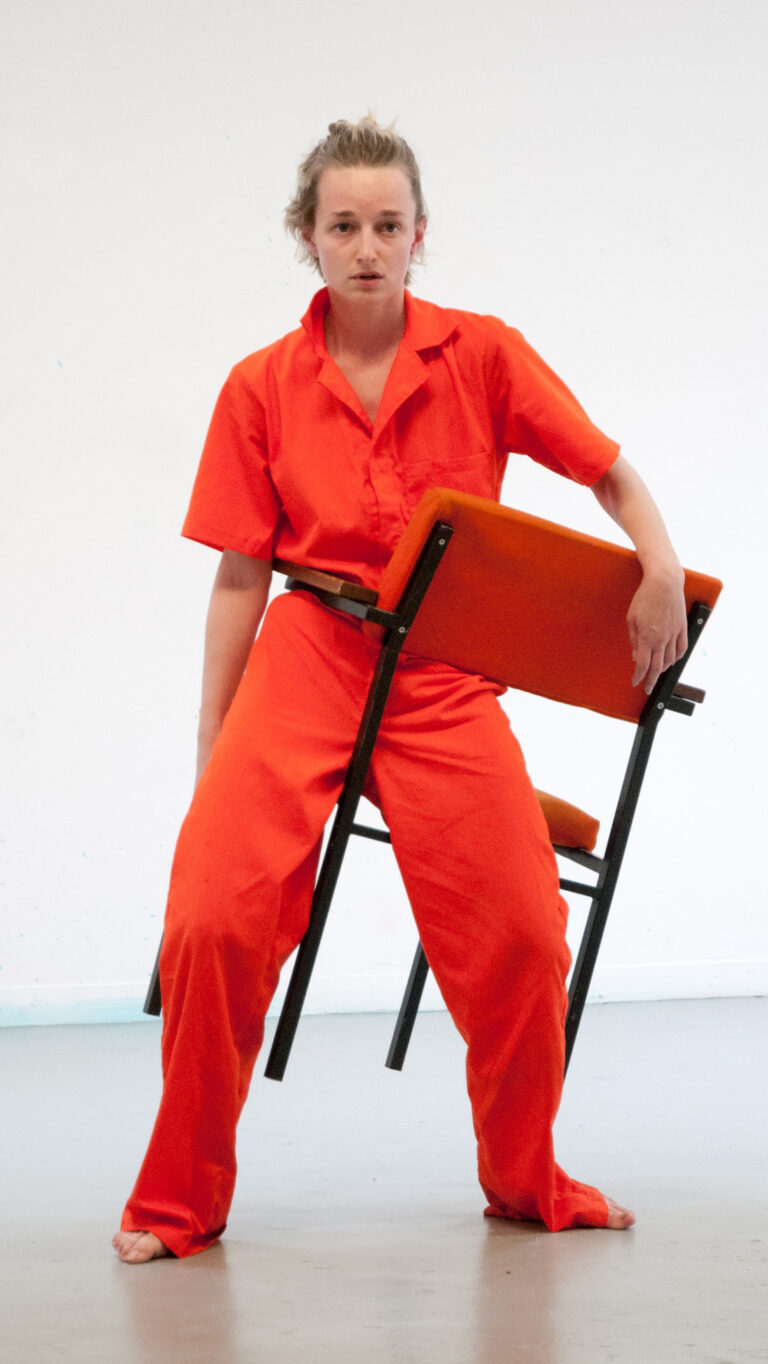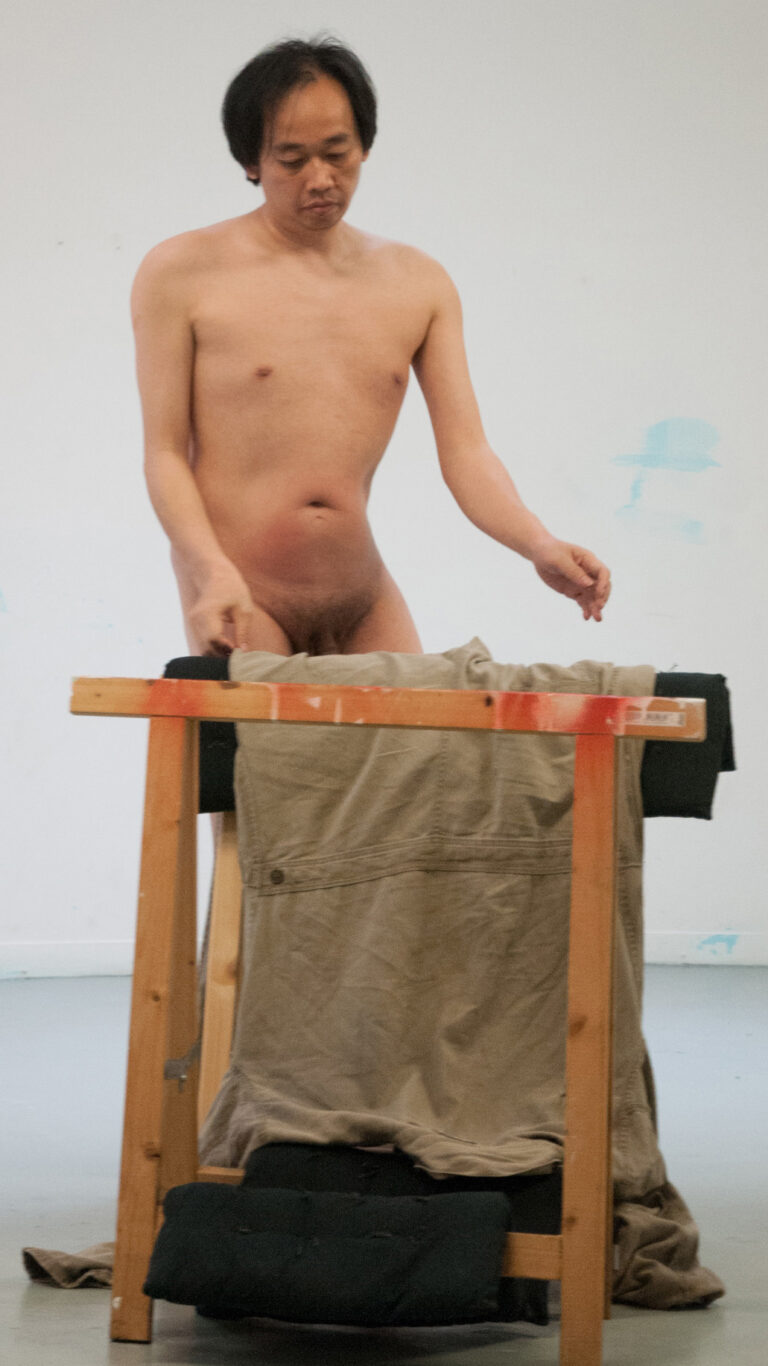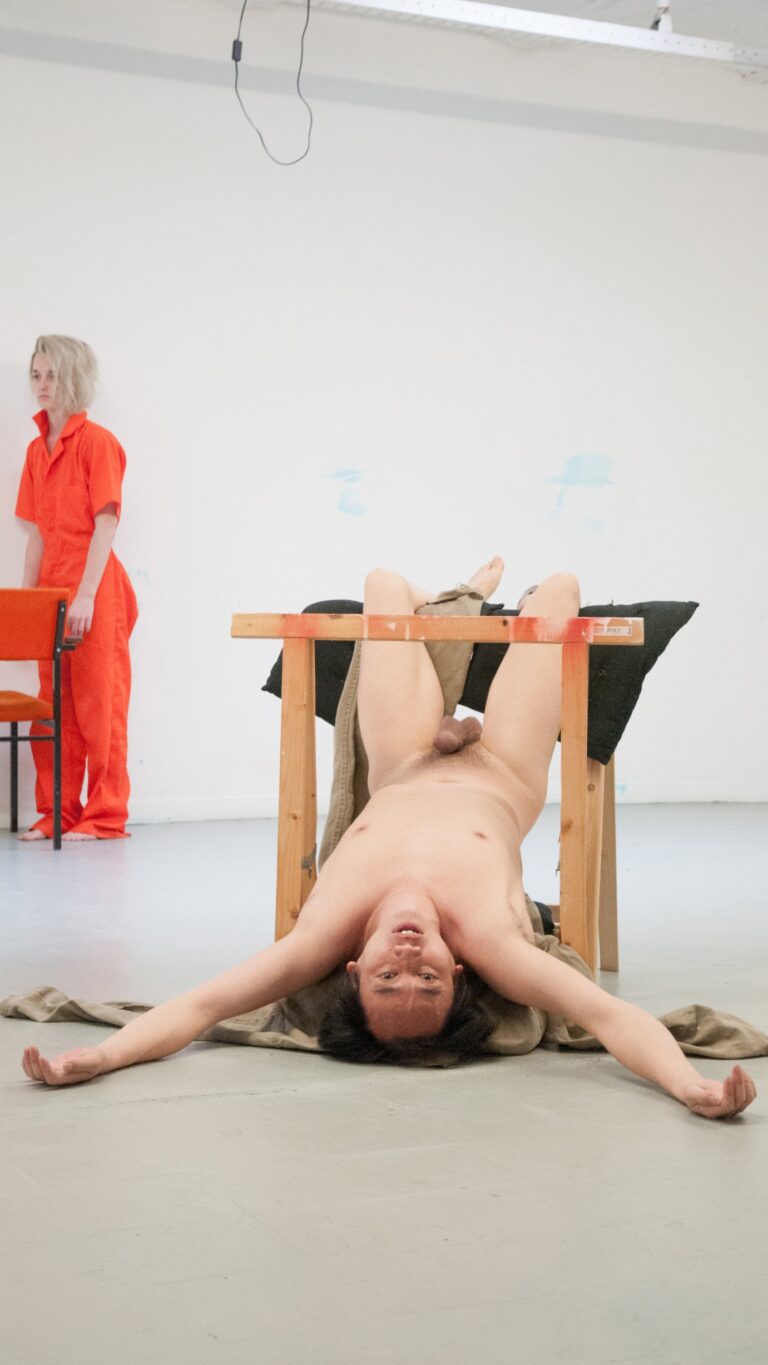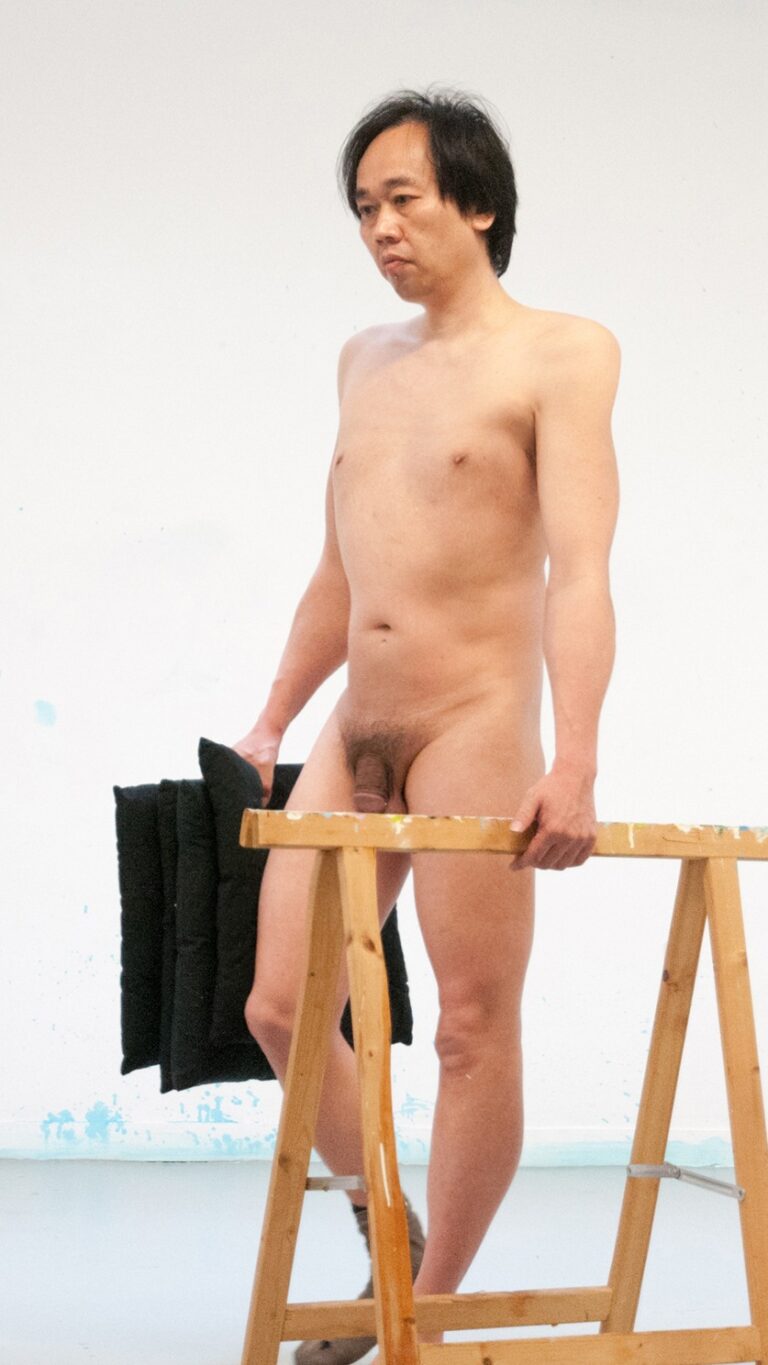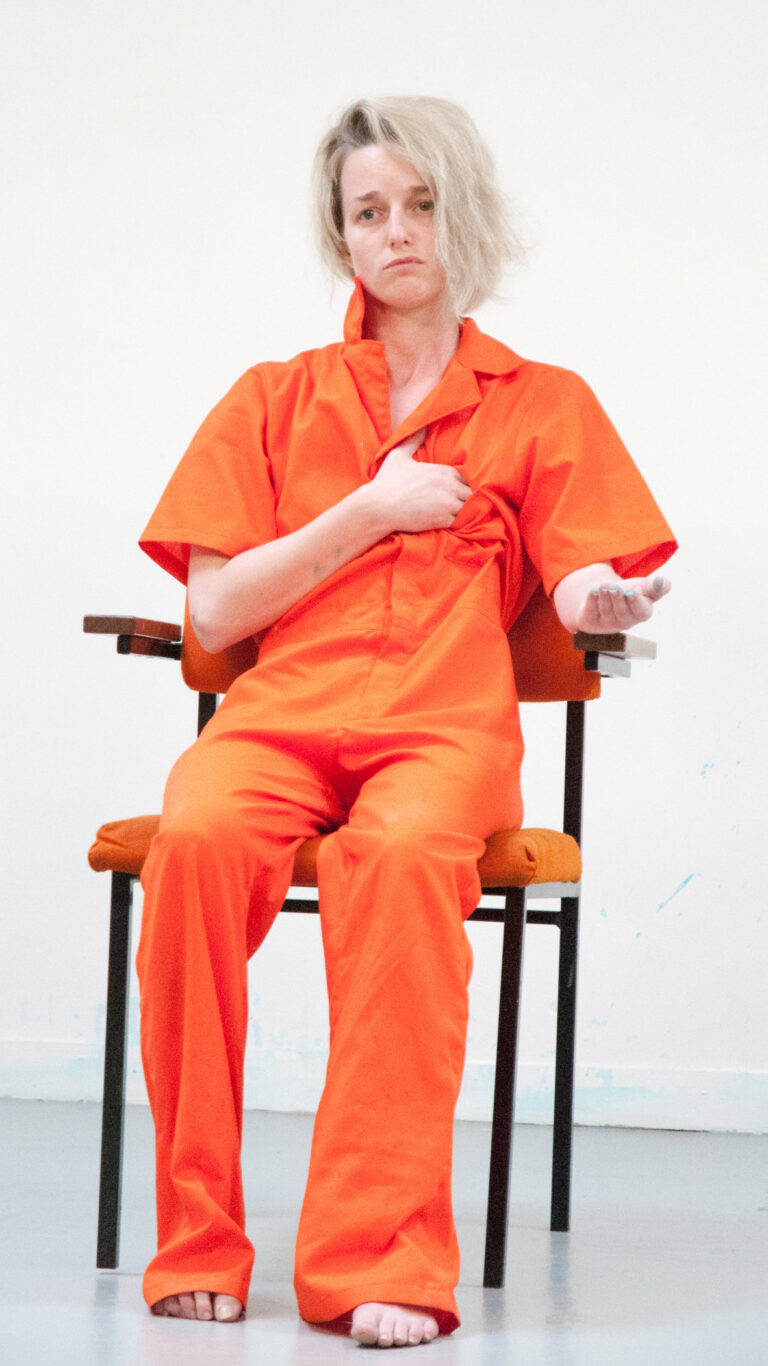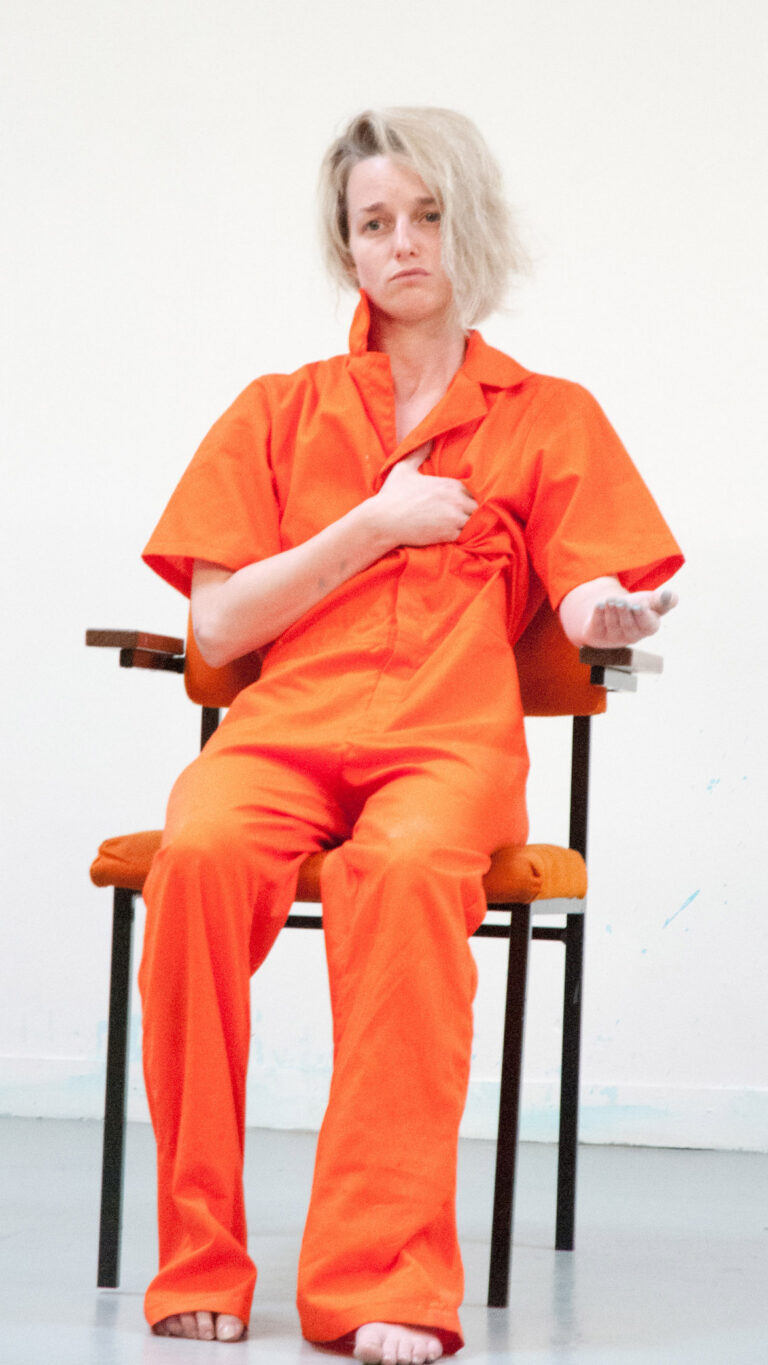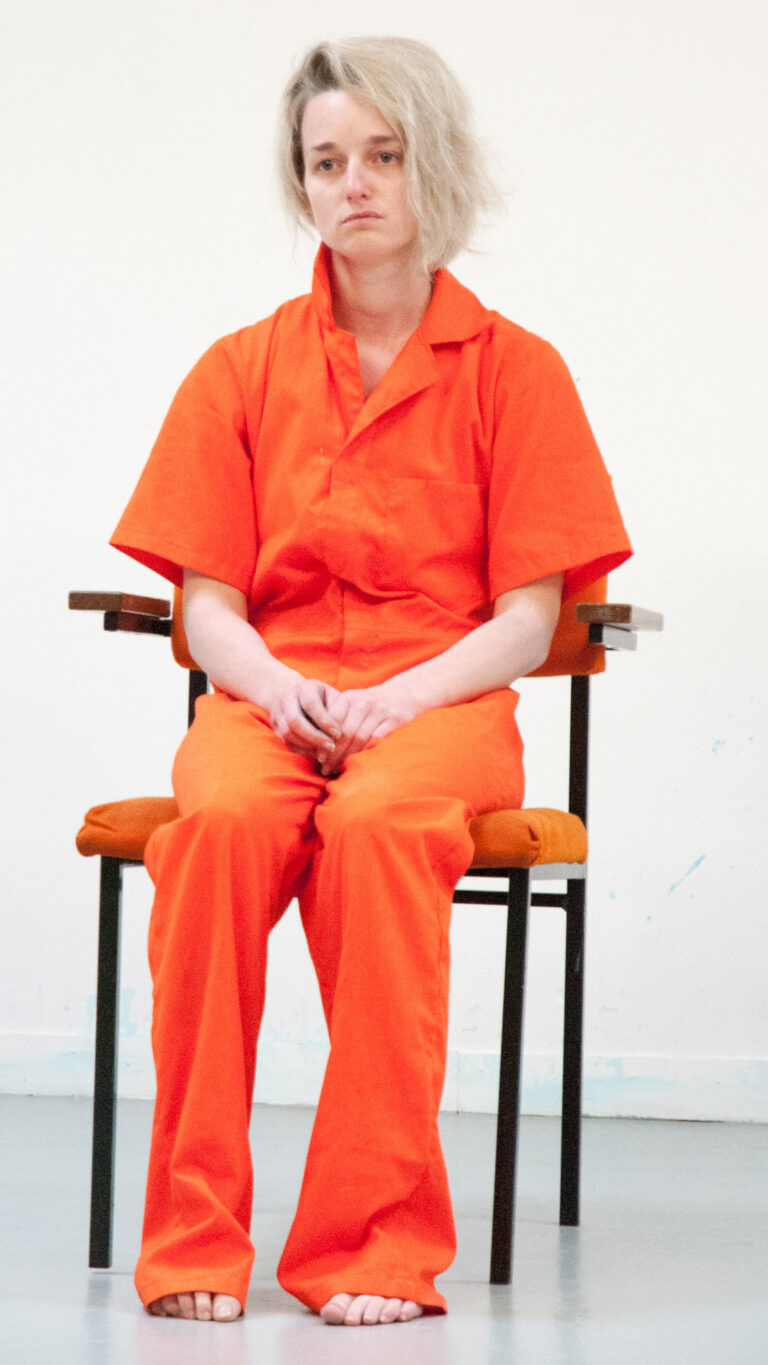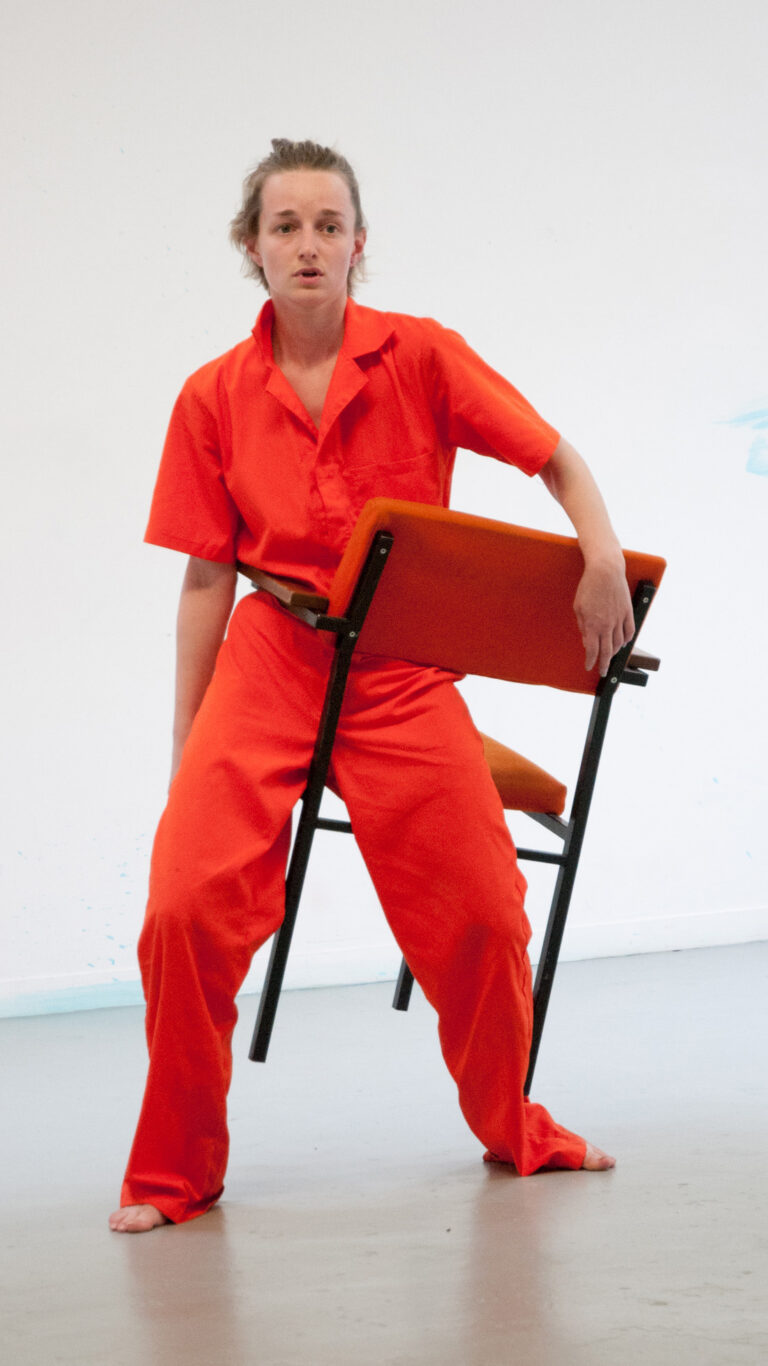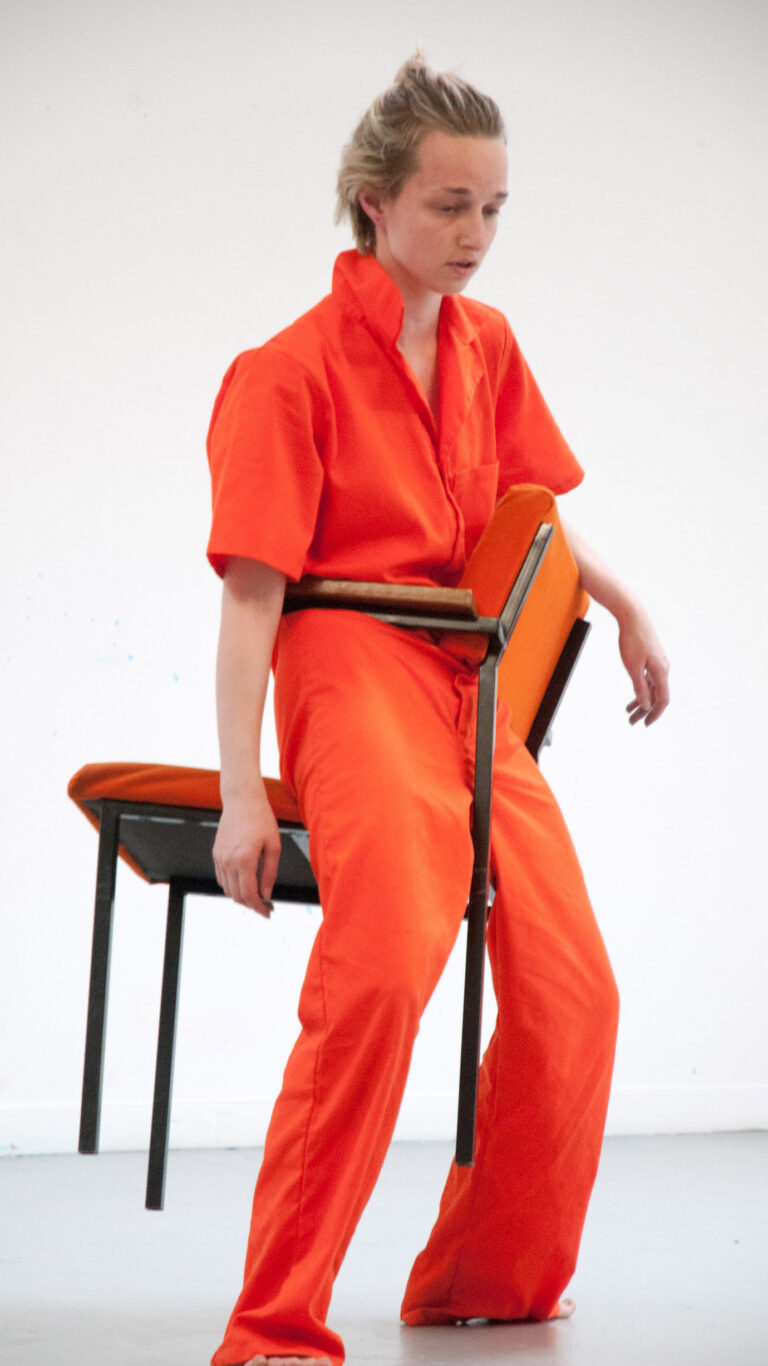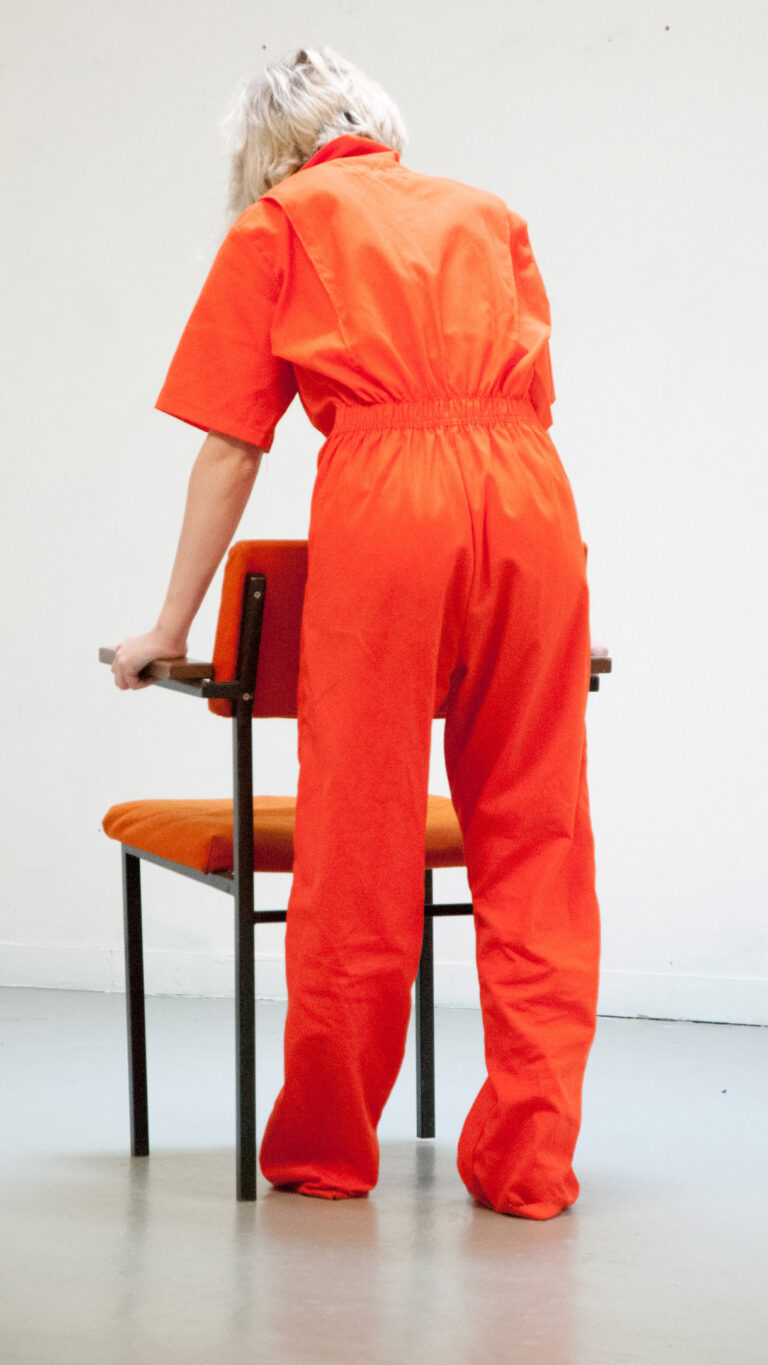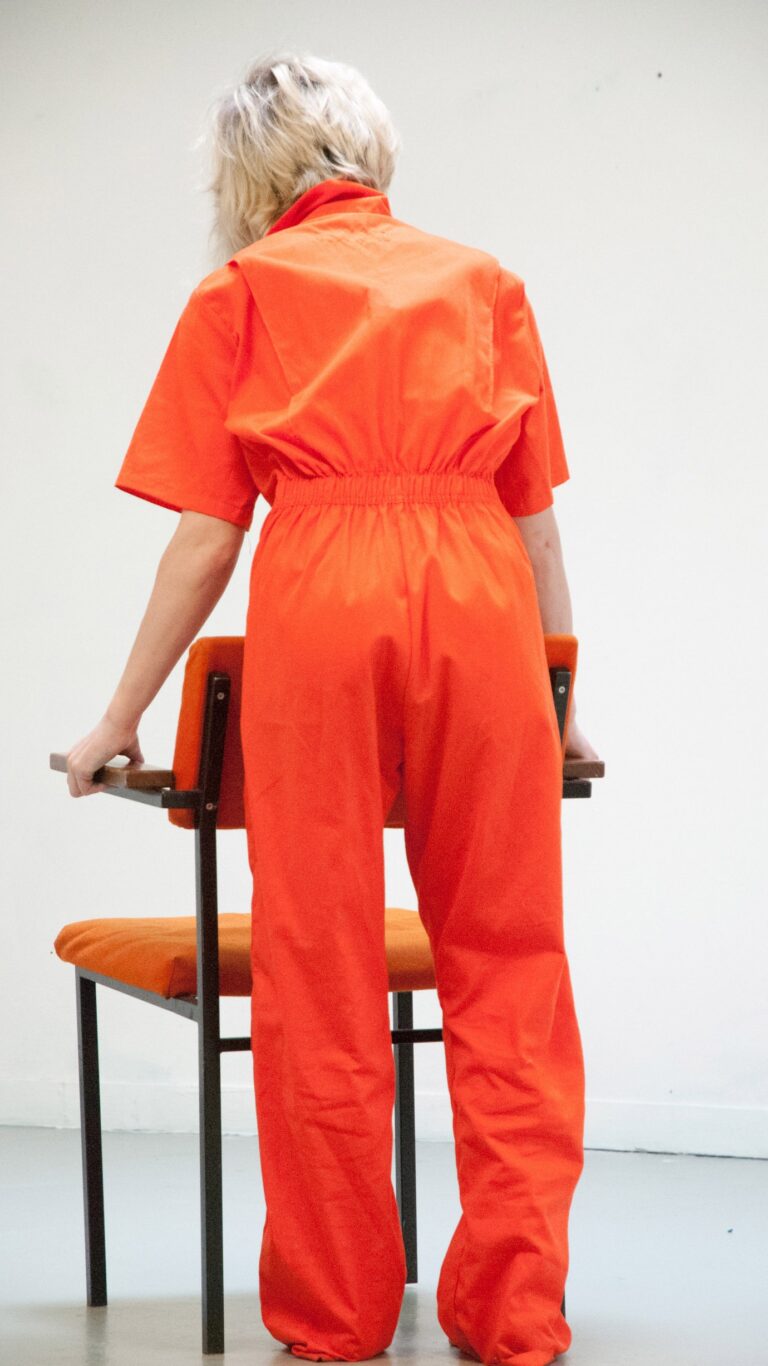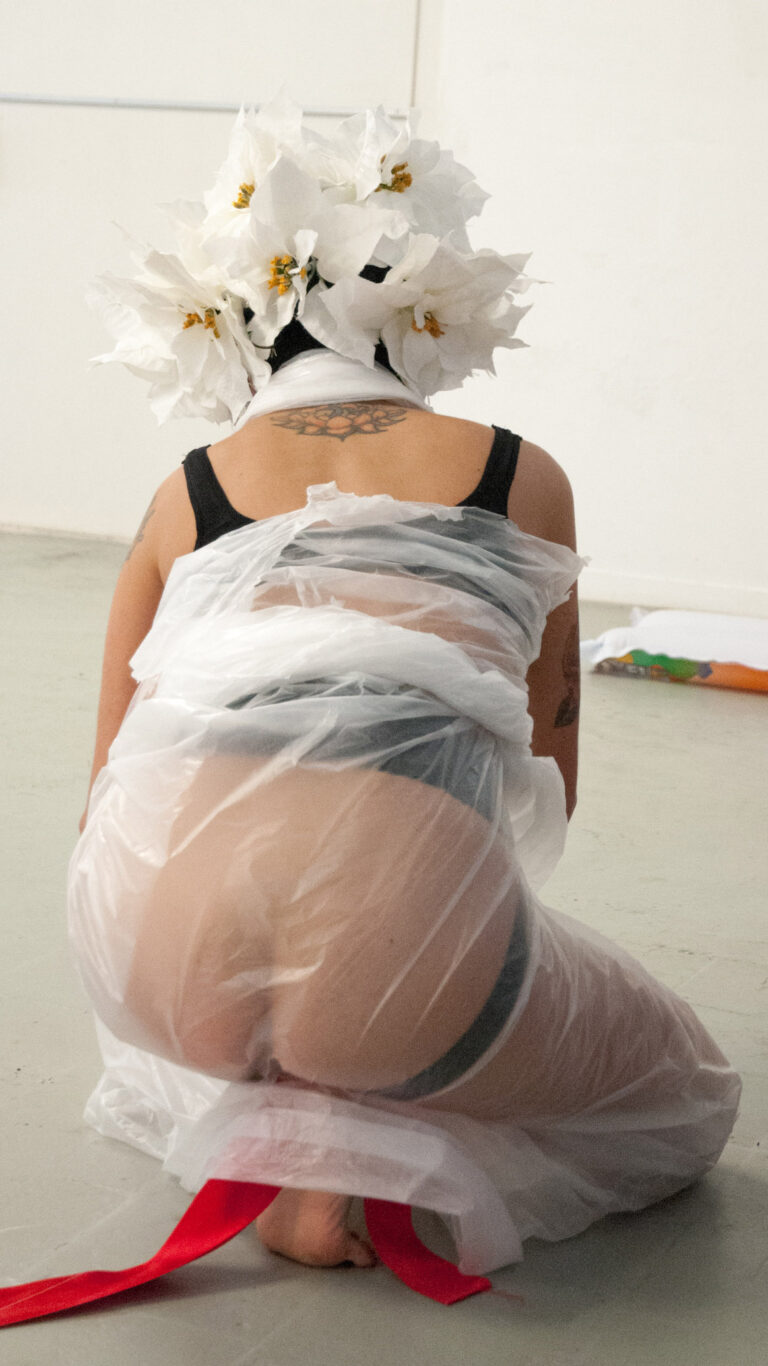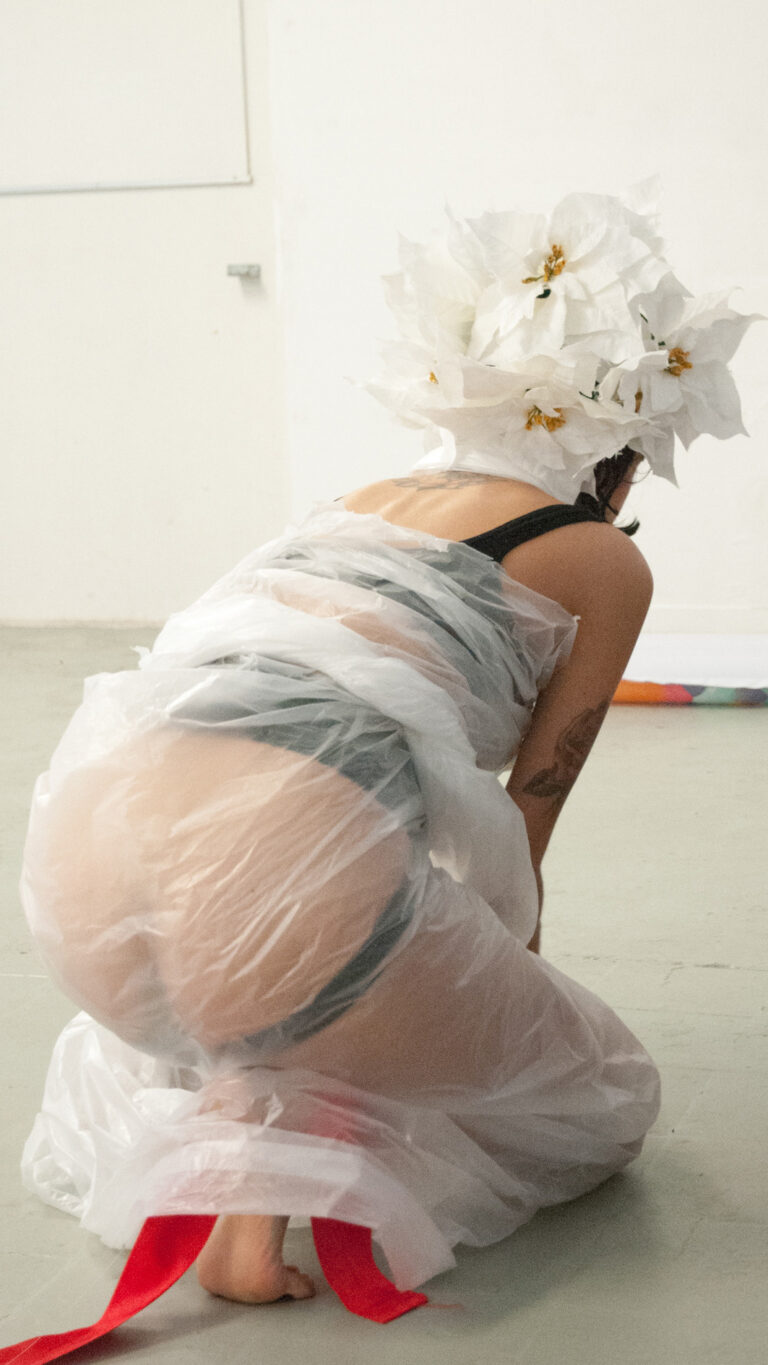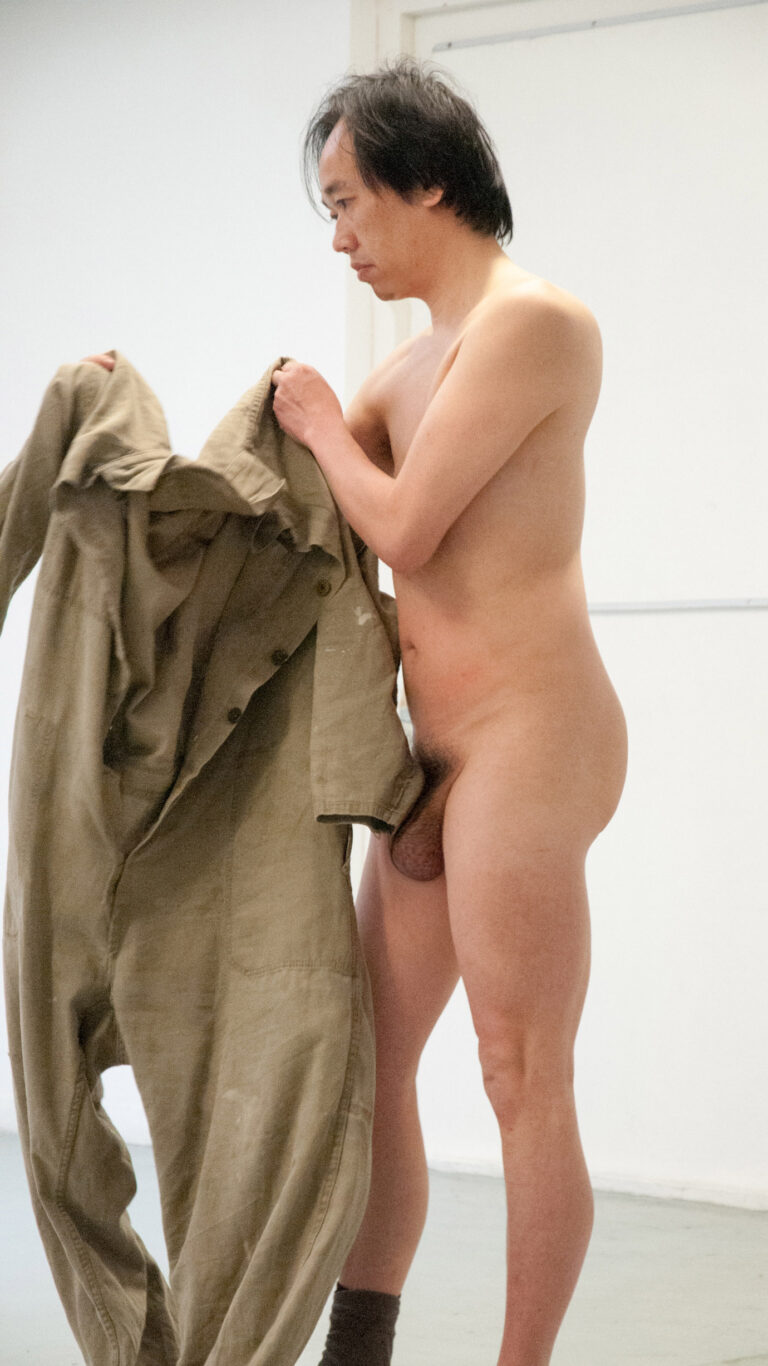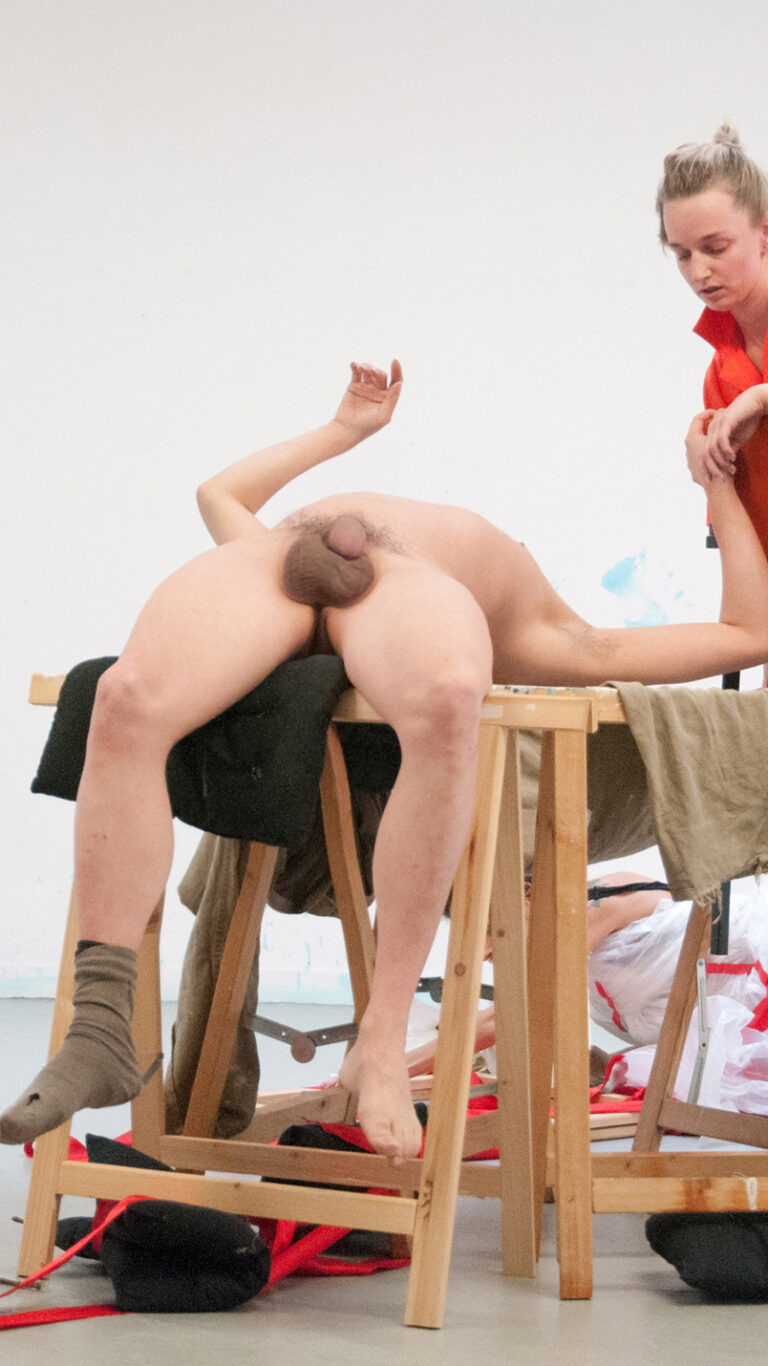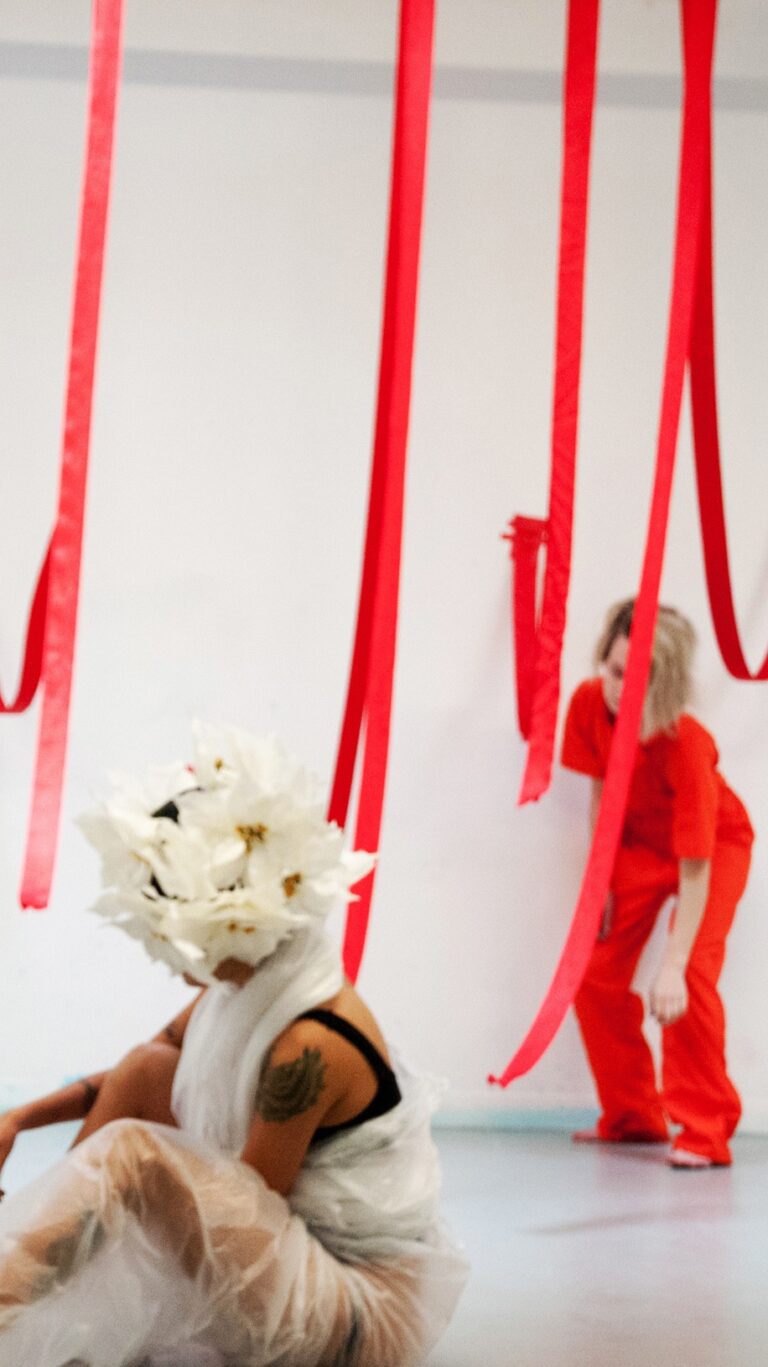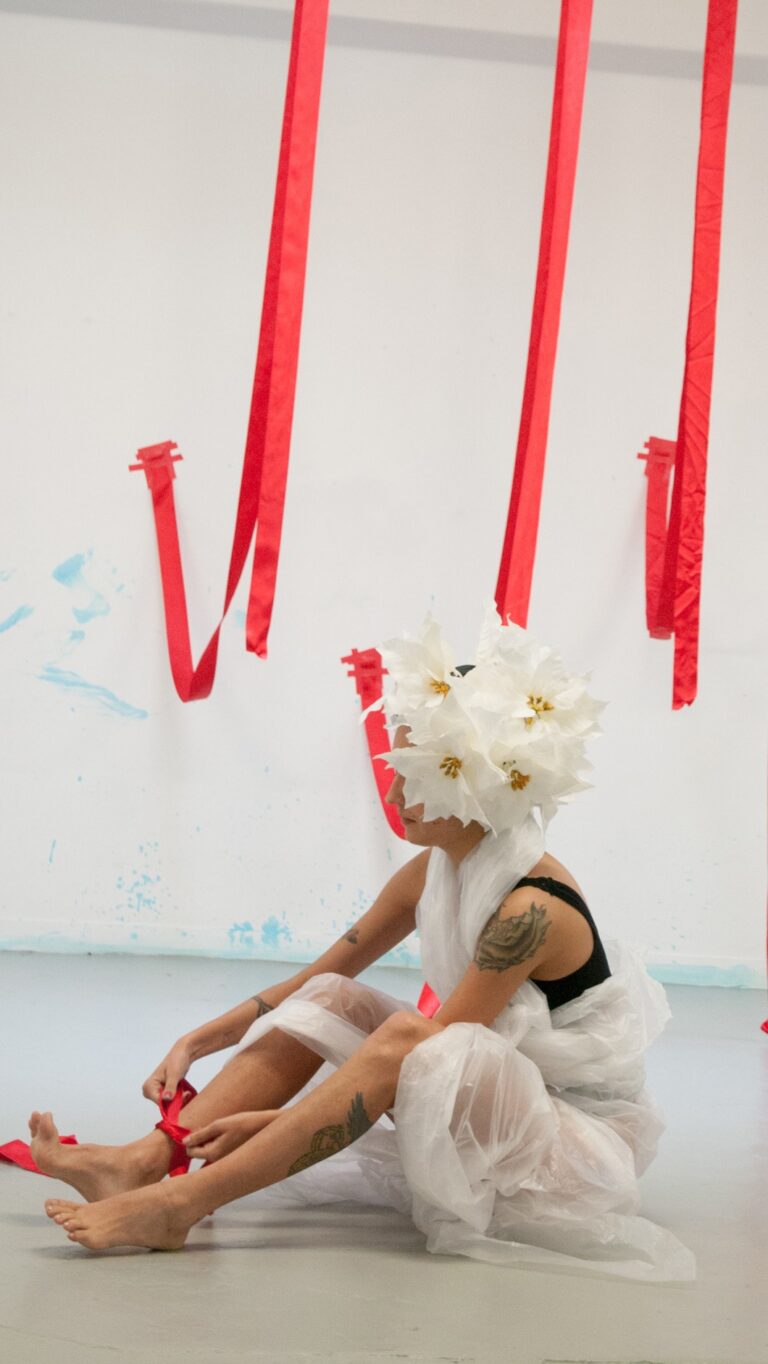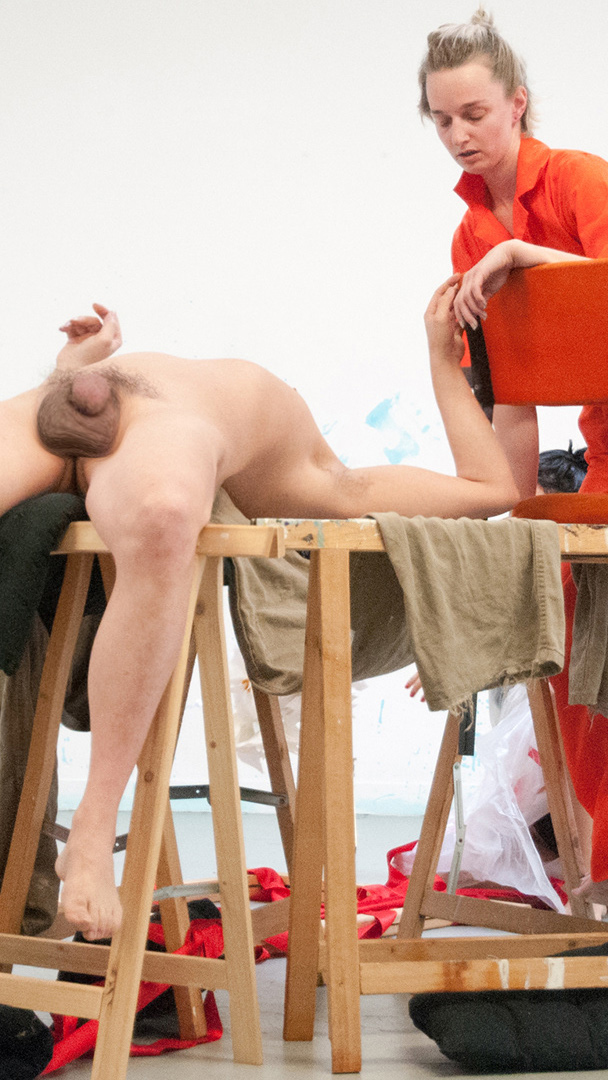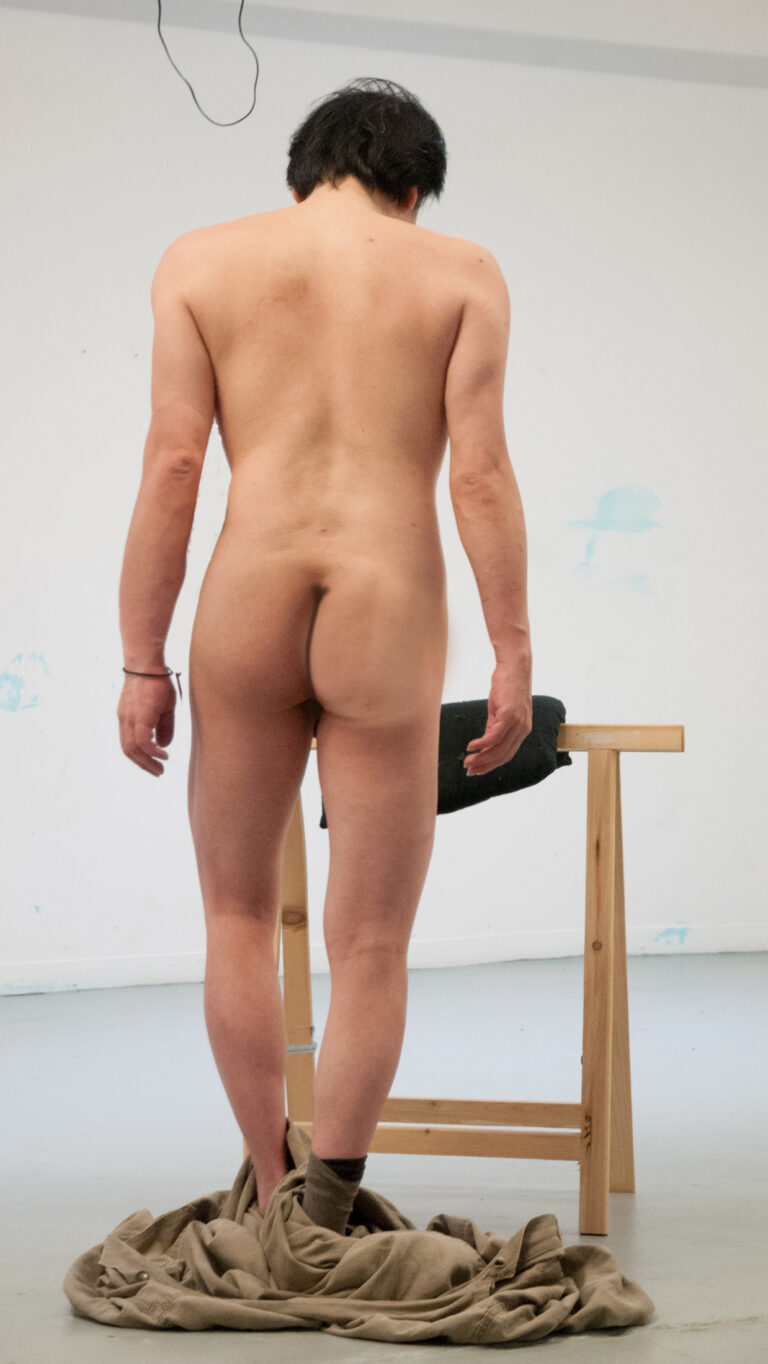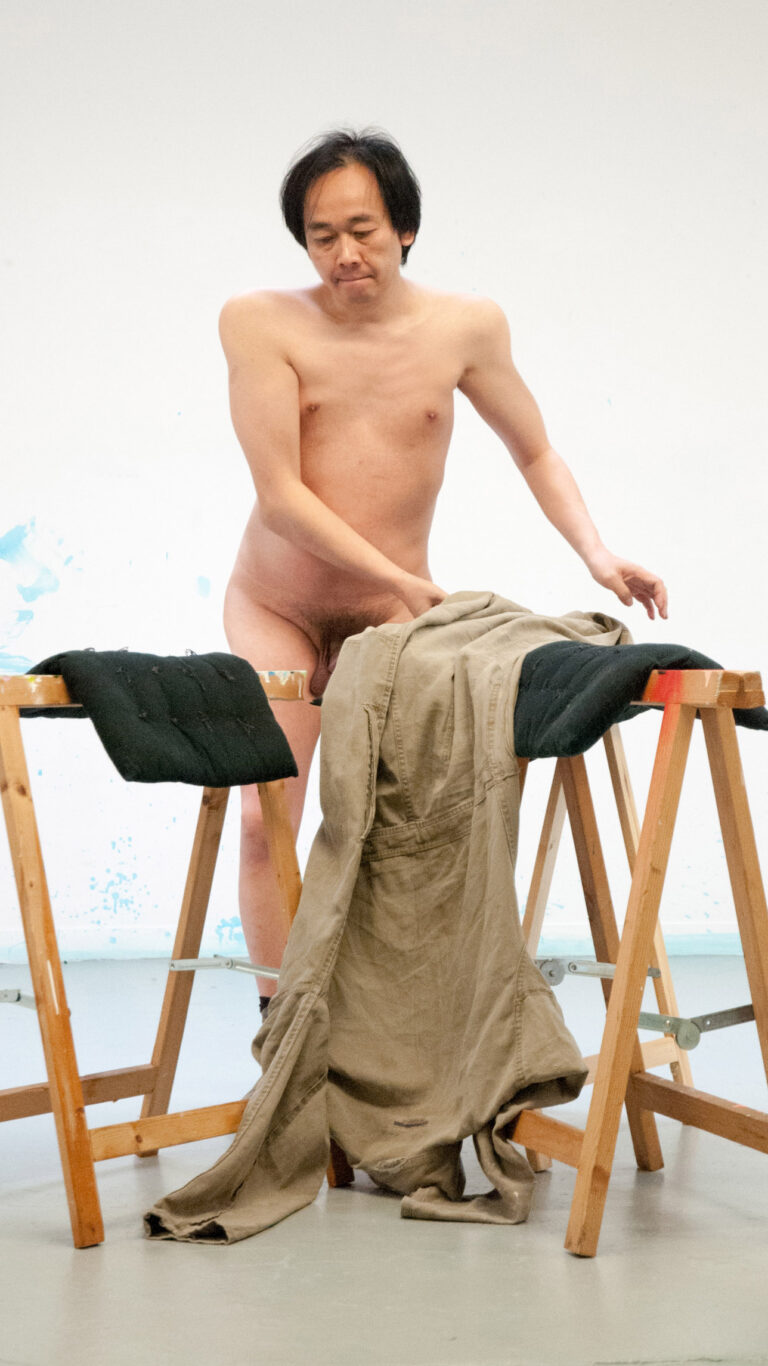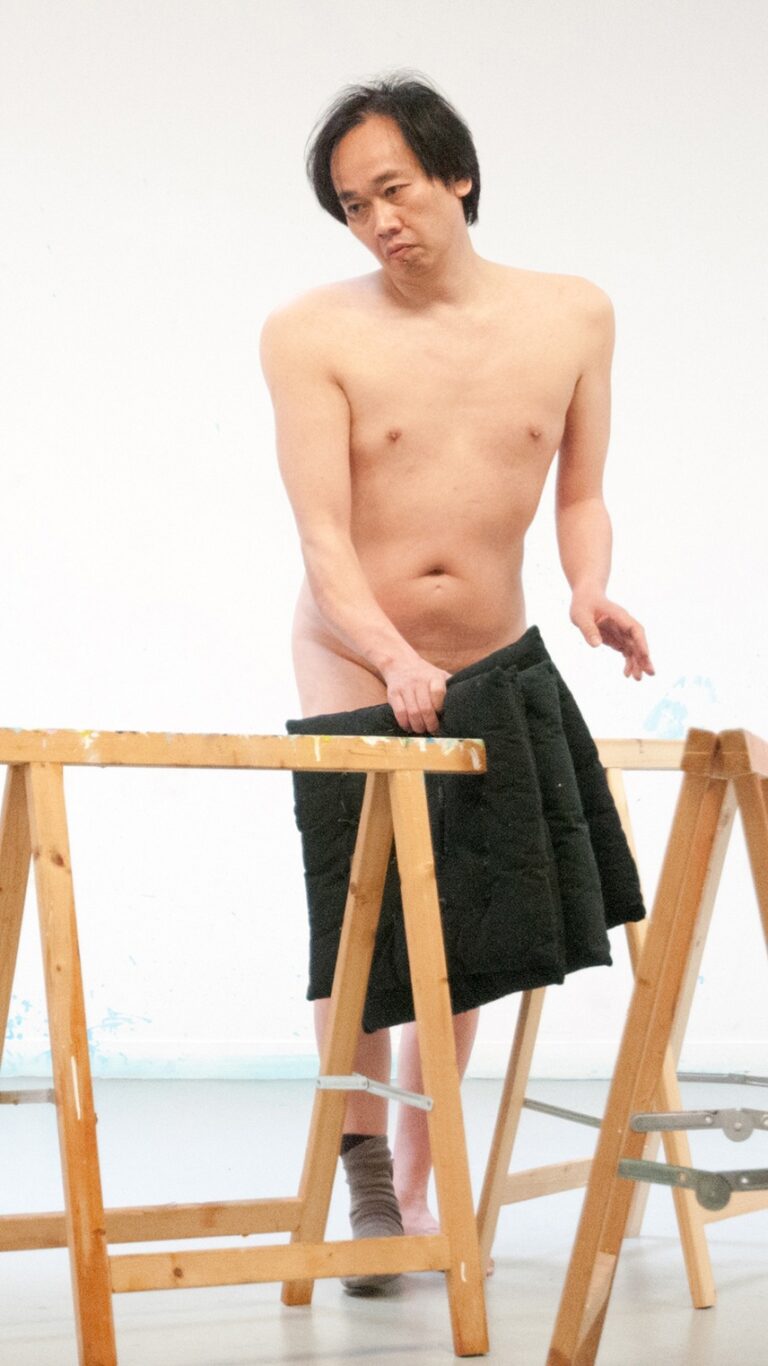Trio Performance Philemon Mukarno
(2017) '30
Ieva Brikė
Ieva Brikė
Trio Performance: A Naked Exploration of the Poetic in Performance Art
The Birth of a Radical Poetic Performance
At the 2017 IPA Festival in The Hague, Philemon Mukarno presented *Trio Performance*, a daring act that redefined what it means to be naked on stage. Joined by Carol Montealegre and Ieva Brikė, Mukarno turned nudity into language. Their exposed bodies became the text—raw, immediate, and poetic. The festival’s theme, “the poetic in performance art,” offered the perfect stage for this emotional confrontation between vulnerability and meaning.
The Festival’s Supportive Context
Hosted by the International Performance Association in partnership with Performance Site and Performance Art Studies, the festival celebrated transformation through art. The twelve-day program combined workshops, talks, and intense performances. In this environment, *Trio Performance* found a fertile home. The venue, Quartair—a former industrial bread factory—added a stark edge. Cold stone met warm skin. The body became a verse written in flesh against a rough architectural backdrop.
Institutional Endorsement of Vulnerability
Supporting explicit nudity in such a prestigious context was a bold institutional gesture. It validated physical exposure as a legitimate artistic inquiry rather than provocation. Nudity here was not spectacle but substance. The organizers framed the piece as a poetic text, refocusing interpretation away from voyeurism. In doing so, they allowed the body to speak as a philosophical and political instrument of truth.
Philemon Mukarno: From Composer to Living Instrument
Philemon Mukarno, a Jakarta-born composer known for his disciplined sonic structures, transformed his mastery into live corporeal art. He replaced instruments with the body. His compositional control became physical form. Nudity, for him, represented purification—a symbolic shedding of material attachment. Within *Trio Performance*, his nakedness was not absence but arrival: a presence fully revealed and sonically aligned.
Carol Montealegre: Activism Through Exposure
Colombian artist Carol Montealegre infused the performance with political substance. Her background in human rights activism and trauma studies gave the act a sharp moral urgency. For her, nudity was not vulnerability but rebellion. It reclaimed bodily autonomy in the face of control. Standing unclothed, she turned the stage into a battlefield for emancipation, with skin as both armor and wound.
Ieva Brikė: Silence, Freedom, and the Maternal Body
Ieva Brikė approached the performance through themes of silence and social pressure. Her creative focus often explored motherhood and autonomy. On stage, her nudity became language where words failed. The gesture of stripping down became a plea for authenticity, evoking empathy and discomfort in equal measure.
Shared Exposure: One Body, Three Voices
The strength of *Trio Performance* lies in merging distinct artistic goals. Mukarno’s quest for structure met Montealegre’s political defiance and Brikė’s intimate exploration. Nudity served as their common syntax—the constitution of spiritual, political, and social liberation. The exposed body unified difference, turning discomfort into dialogue.
Nudity as Poetic Device
In *Trio Performance*, the naked body was not erotic but semiotic. It spoke. It questioned. It resisted. This distinction created space for the “naked nude”—a concept that rejects idealized beauty. By revealing imperfection, the artists invited empathy rather than desire. The audience saw fragility as the truest expression of human existence.
The Political Power of Exposure
Performing naked became a declaration of autonomy. Each unclothed gesture dismantled centuries of imposed shame. Montealegre’s influence was evident here. The performance claimed physical sovereignty through collective exposure, transforming vulnerability into protest. Instead of being looked at, the artists looked back—turning spectators into participants in emancipation.
The Corporeal Triad and Audience Intimacy
The trio’s shared nakedness formed a living triangle of connection. The presence of both male and female bodies disrupted gendered projections. The absence of costume erased hierarchy. The performance space became equal ground. The result was not titillation but tenderness—an intimate confrontation with shared human mortality.
Memory Etched in Flesh
Performance art is fleeting, but the memory of naked vulnerability endures. Each gesture imprinted itself onto the audience’s emotional archive. Montealegre’s research into trauma became visible in this persistence. The body, exposed and unguarded, became an eternal image—a living archive of artistic courage.
Structure, Rhythm, and Flow
Mukarno’s musical background shaped the choreography.
Movement was rhythm. Silence was sound. Each repetition created meditative flow, guiding viewers toward reflection rather than reaction. The disciplined pacing transformed the physical act into musical notation, composing empathy through motion.
Objects, Minimalism, and Meaning
The performance incorporated simple actions and symbolic objects. Each item carried poetic weight—an anchor for meaning within the exposed space. Montealegre’s belief in transforming “dreamed images” into tangible reality resonated here. The absence of costume heightened focus, turning small gestures into grand metaphors of power and loss.
The Quartair Setting: Industrial Poetics
Quartair’s unpolished factory walls enhanced the piece’s authenticity. The contrast between the industrial environment and the vulnerable body deepened the tension. The echo of footsteps, the cold air, and the proximity of spectators intensified awareness. This confrontation stripped away artistic distance, leaving only raw presence.
The Stripped Soundscape
Sound acted as an invisible partner in the performance. Mukarno’s minimalist sonic environment echoed the naked visual theme. Sparse tones replaced melody. Each breath, each movement became part of the musical texture. The result was elemental—pure rhythm and pulse, felt more than heard.
The Audience as Witness
The performance demanded participation. Viewers were not passive observers but witnesses confronting their own discomfort. The act of watching naked truth mirrored the vulnerability of being seen. This dynamic exchange redefined the audience’s role: they became co-authors of meaning through reaction and empathy.
Transformation and Empathy
What began as a confrontation evolved into compassion. The shared fragility of the performers melted resistance. Viewers responded not with judgment, but with recognition. The performance achieved its goal—transformation through radical honesty. Nakedness became connection, exposure became dialogue.
A Collective Rite of Passage
For Mukarno, Montealegre, and Brikė, *Trio Performance* was both creation and initiation. Together, they crossed the threshold between art and life. For the audience, this crossing became a shared ritual—a collective purification through witnessing authenticity unshielded.
Lasting Legacy of Naked Truth
*Trio Performance* endures as a cornerstone of contemporary live art. It fused spirituality, politics, and emotion into one coherent act. The performance proved that nudity, when used consciously, transcends shock. It becomes language—direct, honest, transformative. It reaffirms that the human body, stripped of artifice, remains art’s purest poetic instrument.
IPA The Hauge 2017
This year P.S. Foundation invited the most prominent coaches to conduct a series of masterclasses dedicated to performance art. Jürgen Fritz represents IPA (International Performance Association), while BBB Johannes Deimling is the main figure of PAS (Performance Art Studies). The two platforms introduce contrasting approaches to live art. During the P.S. events, they will share the podium and collaborate for the FIRST time!!!
The performance art will be explored from the point of view of the poetics. How can we make something poetic visible? The quality of the subject might be ALLURING, SENSITIVE, SOFT or, on the contrary, HEAVY, DRAMATIC and DARK. At the same time, the poetry of the topic might be humorous and absurd, gloomy and obscure or light and ephemeral. For the shows P.S. selected pieces where the poetic is reflected in a deep personal approach and the most sincere means of expression.
Presenting performance art pieces to the public is important, but it is also necessary to EXCHANGE and GATHER IDEAS. That’s why we introduce a Thought Wall . The opnions and reflections of the visitors will be collected and put on the wall to serve as an inspiration for the festival participants.
Also AFTER-MORNING-Presentations, Talks and Discussions will take place, so that the artists can be asked about their works and the direct contact between the performers and the audience can be established.
5th till 9th of July 2017
Quartair, Toussaintkade 55, The Hauge, Netherlands

